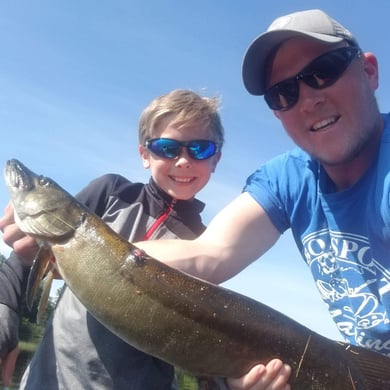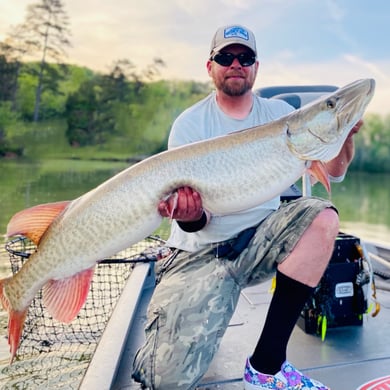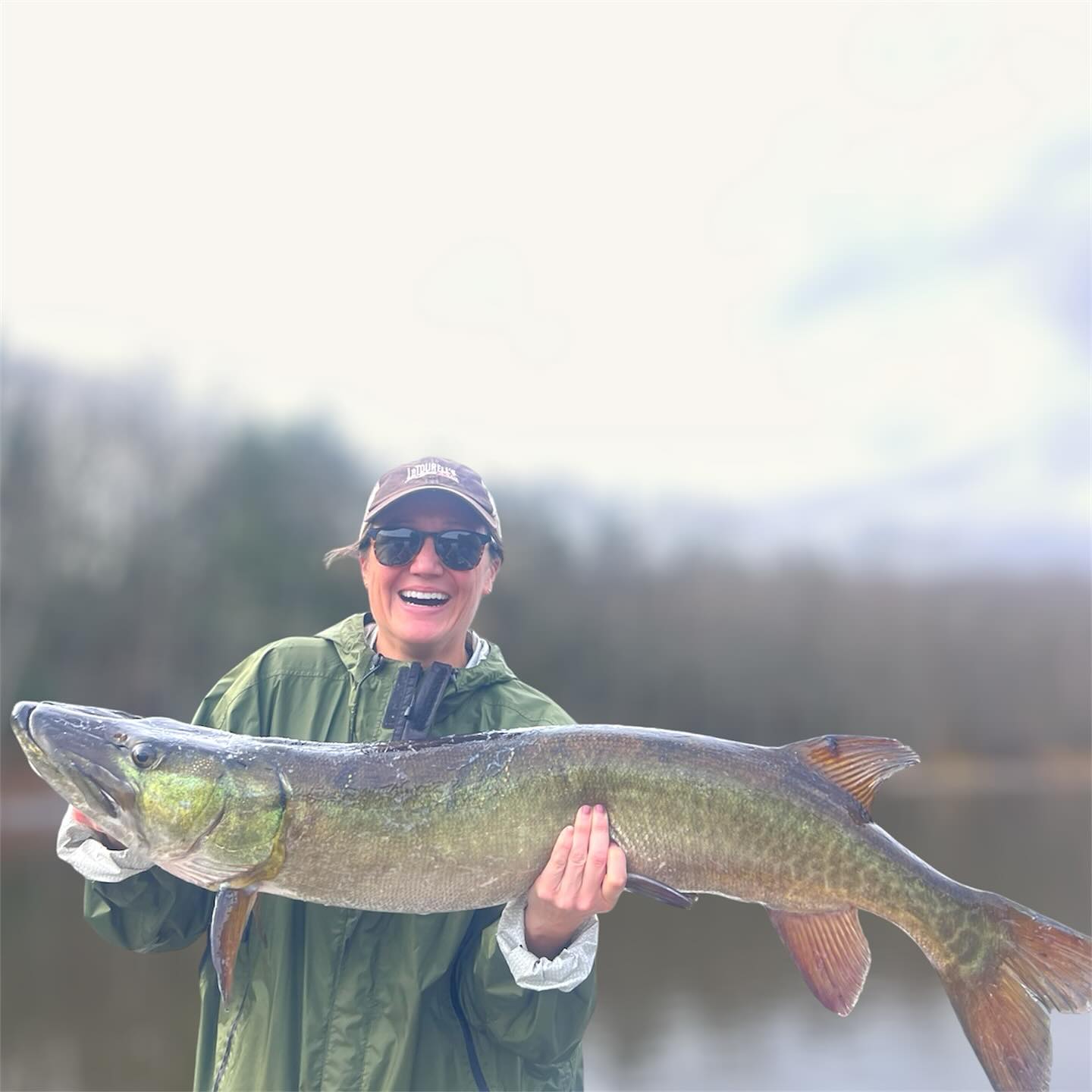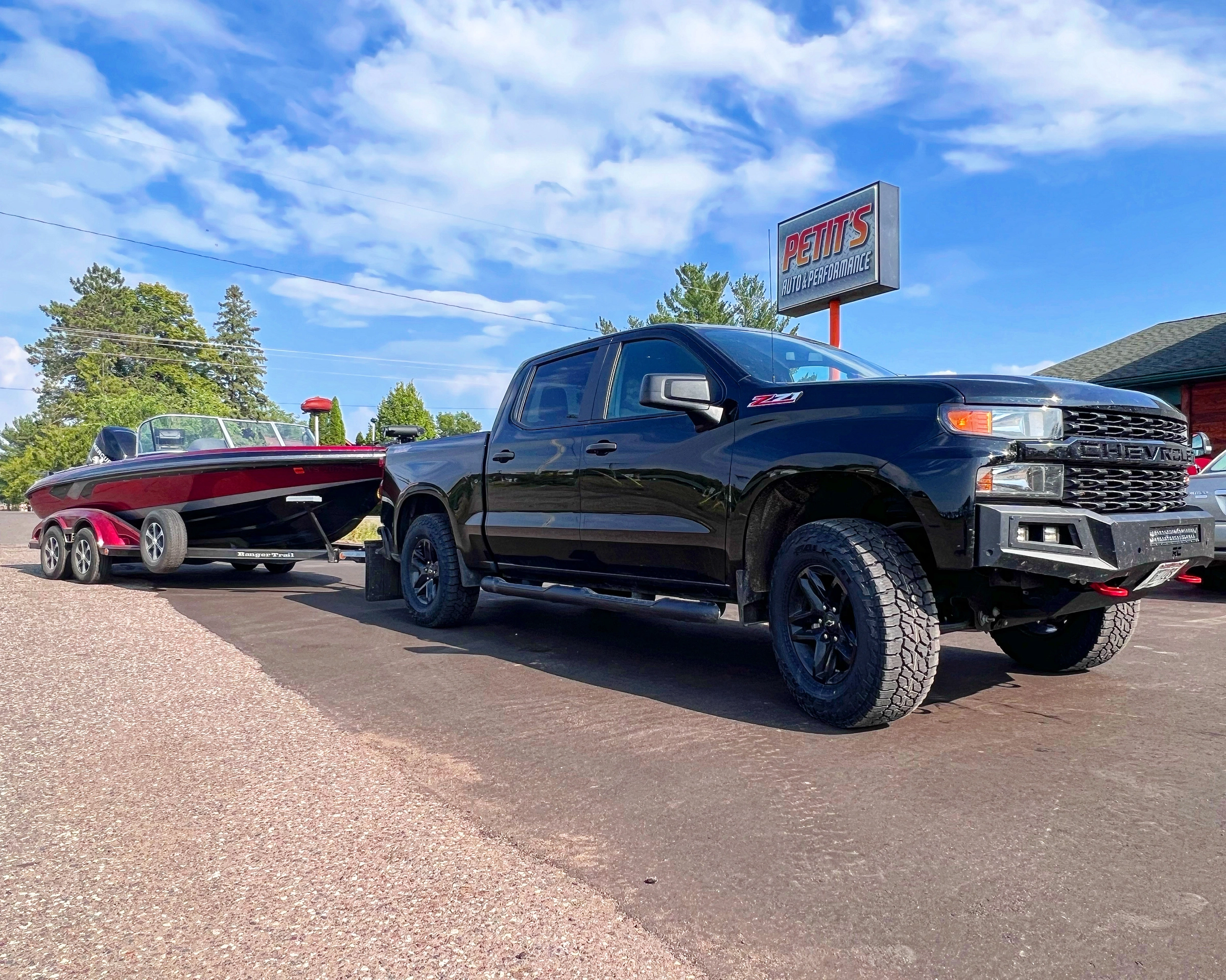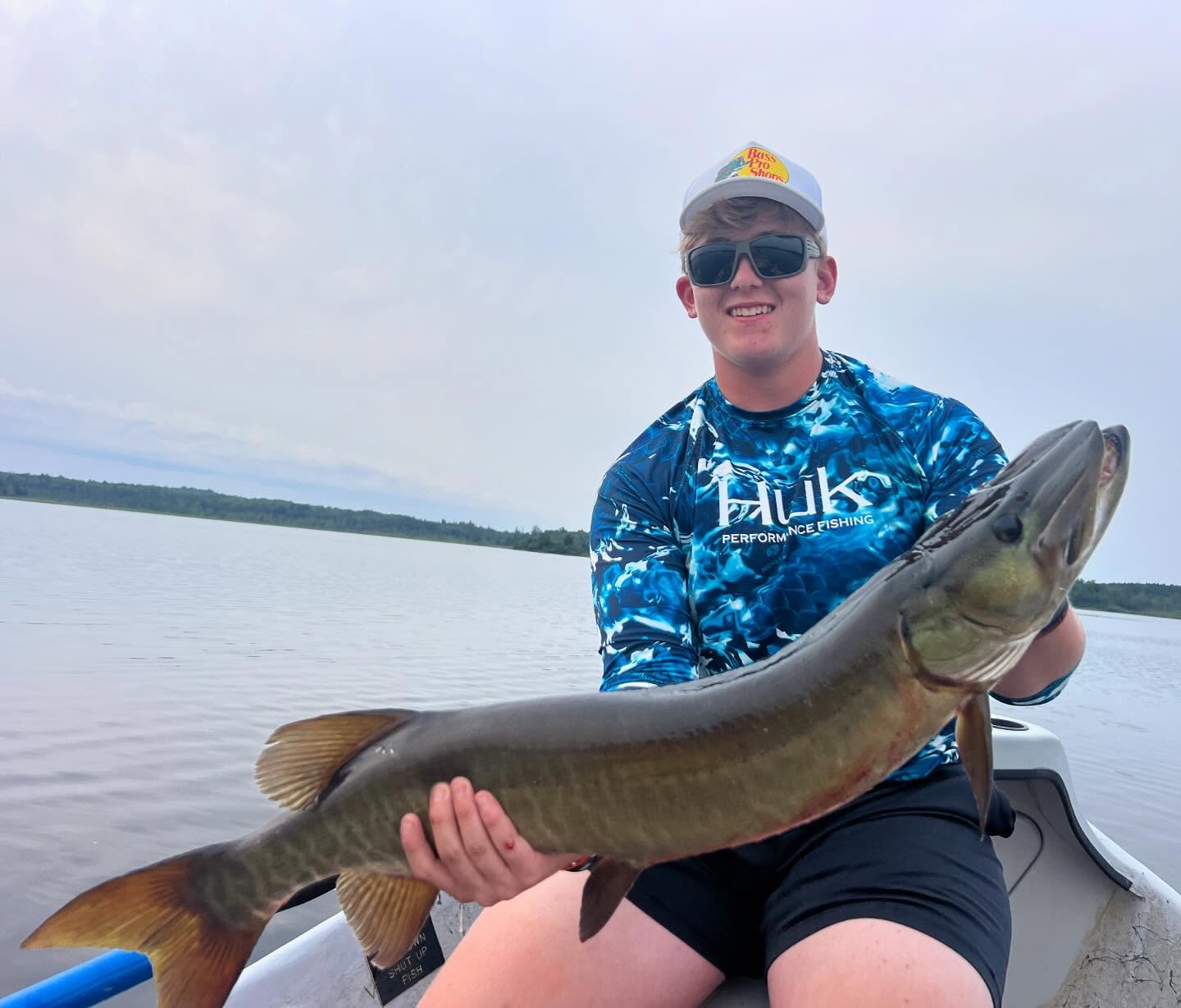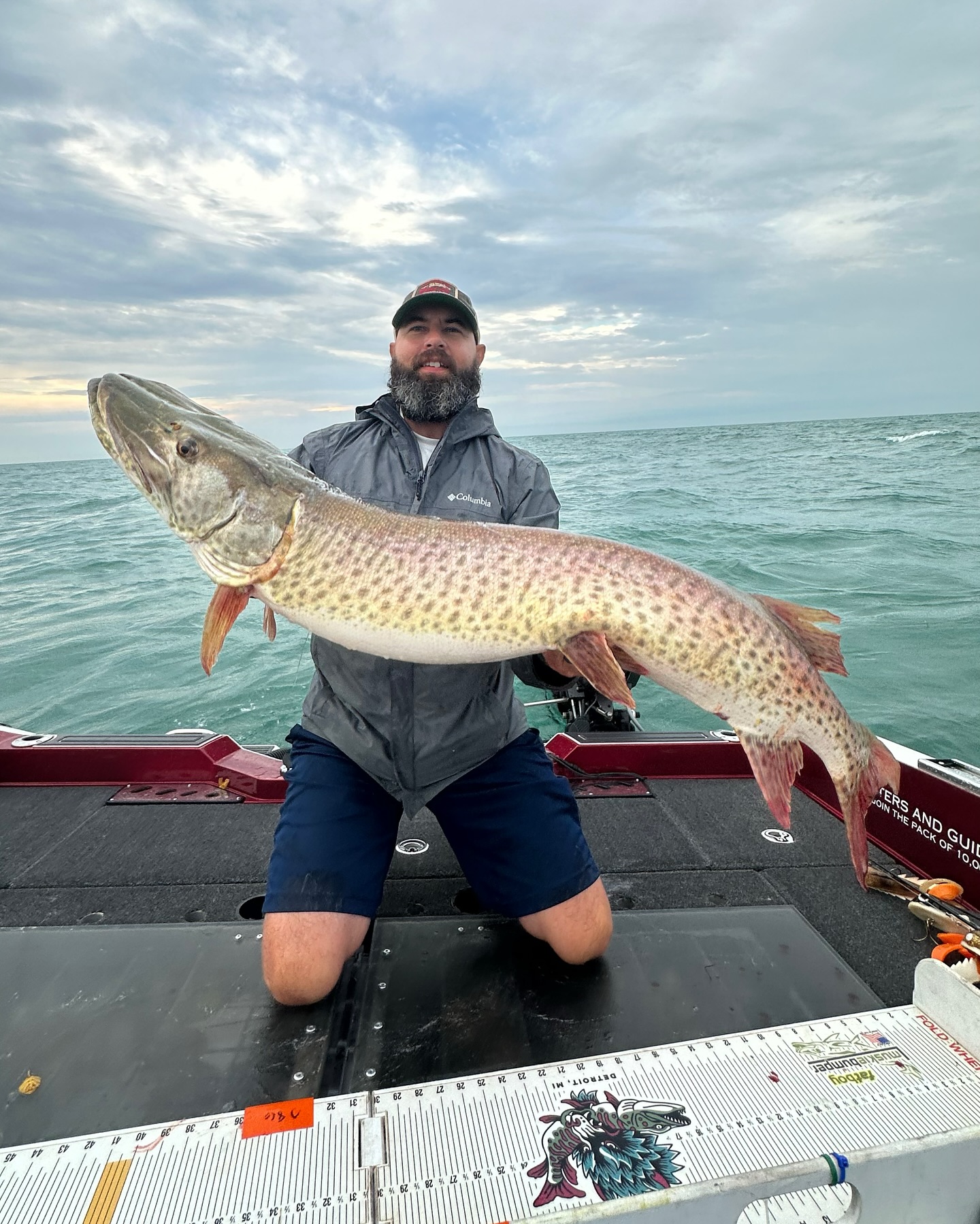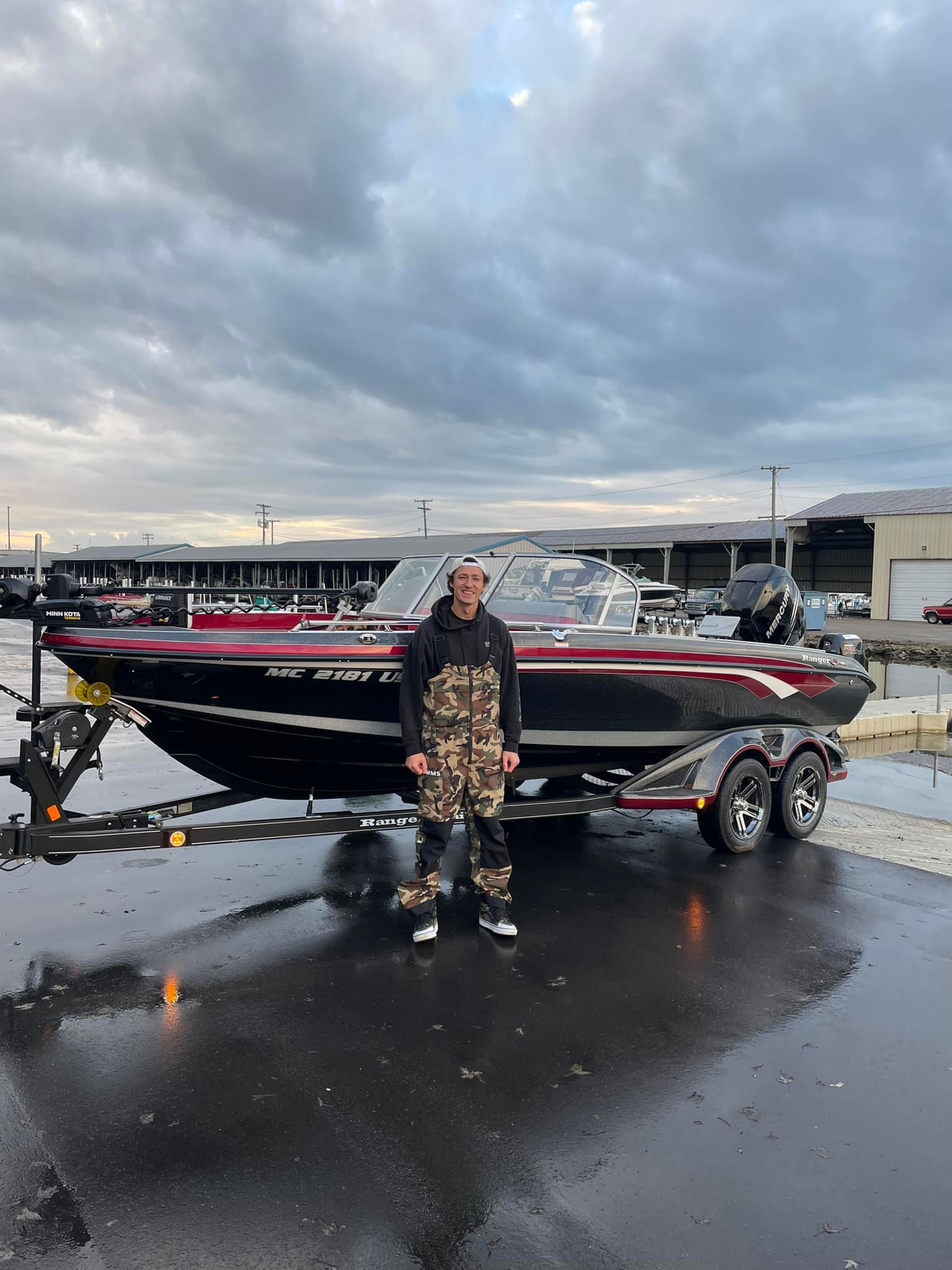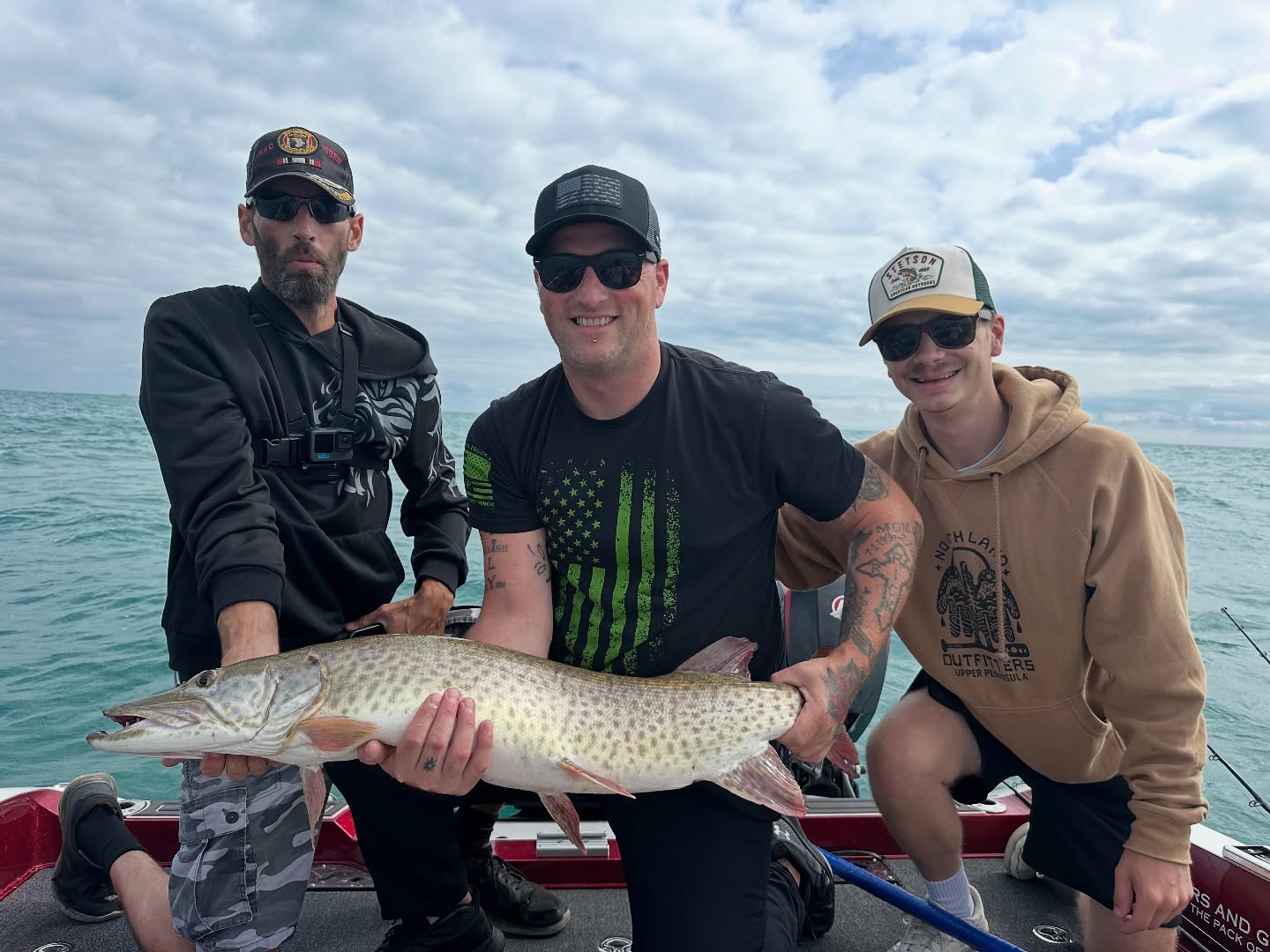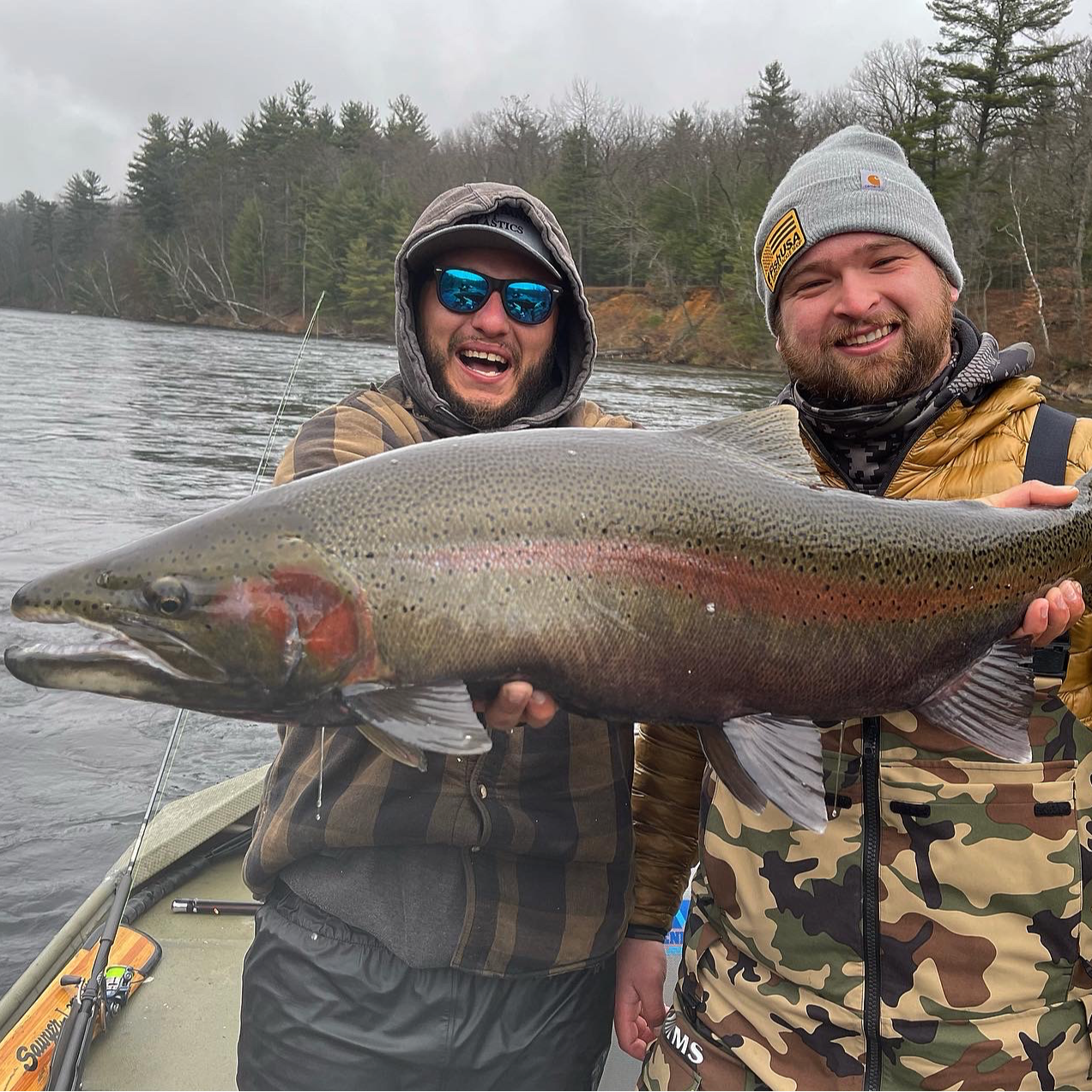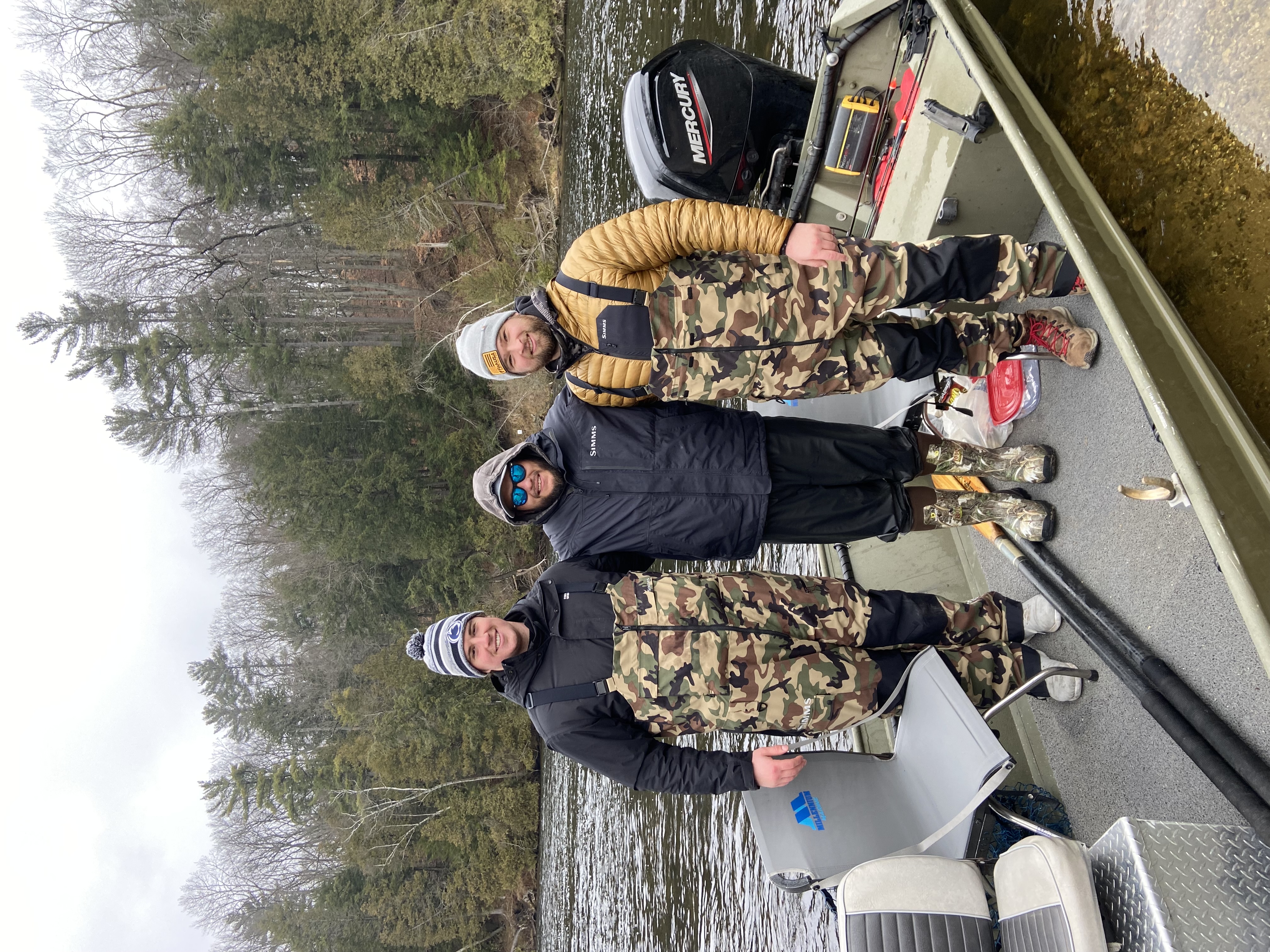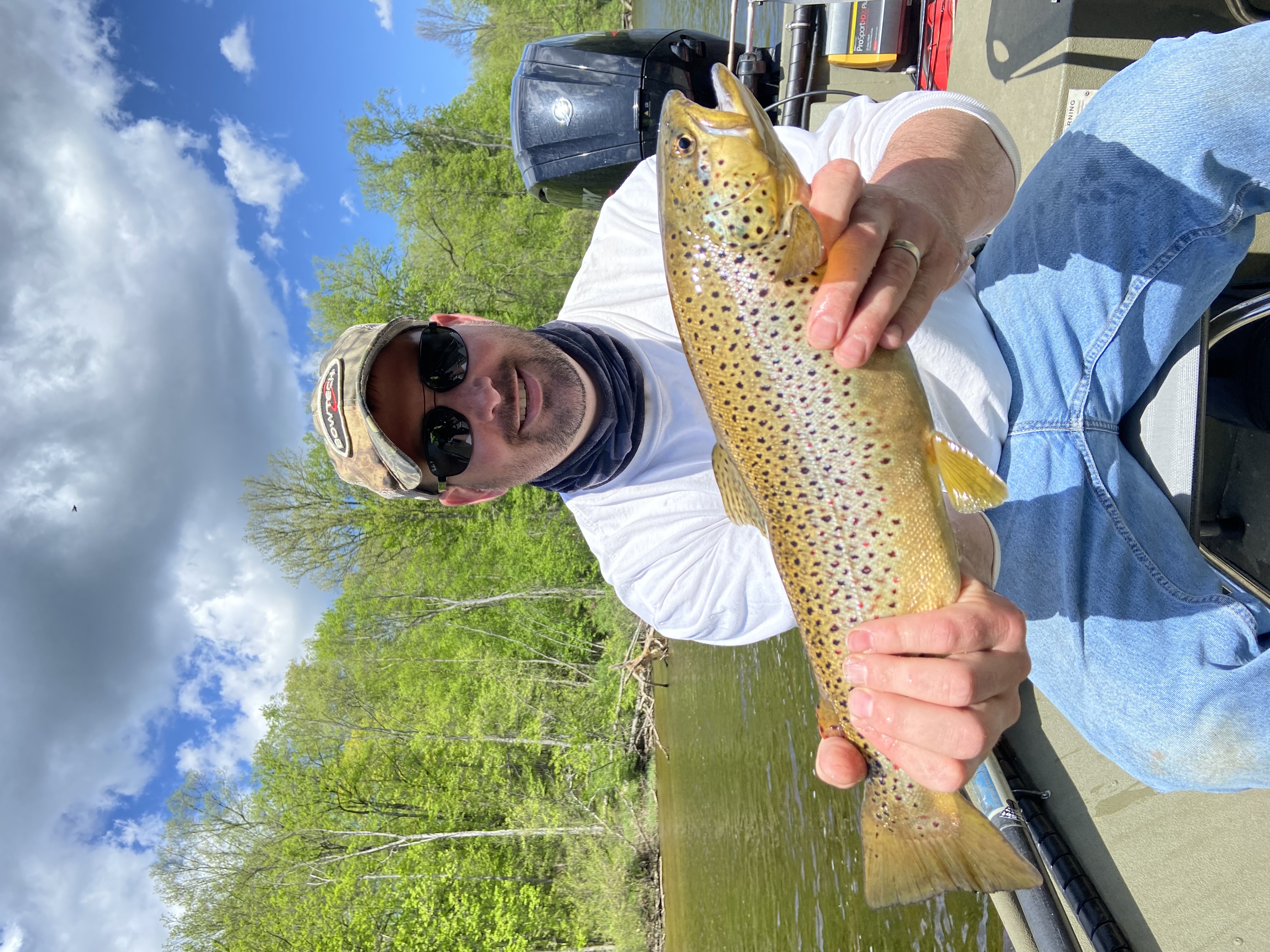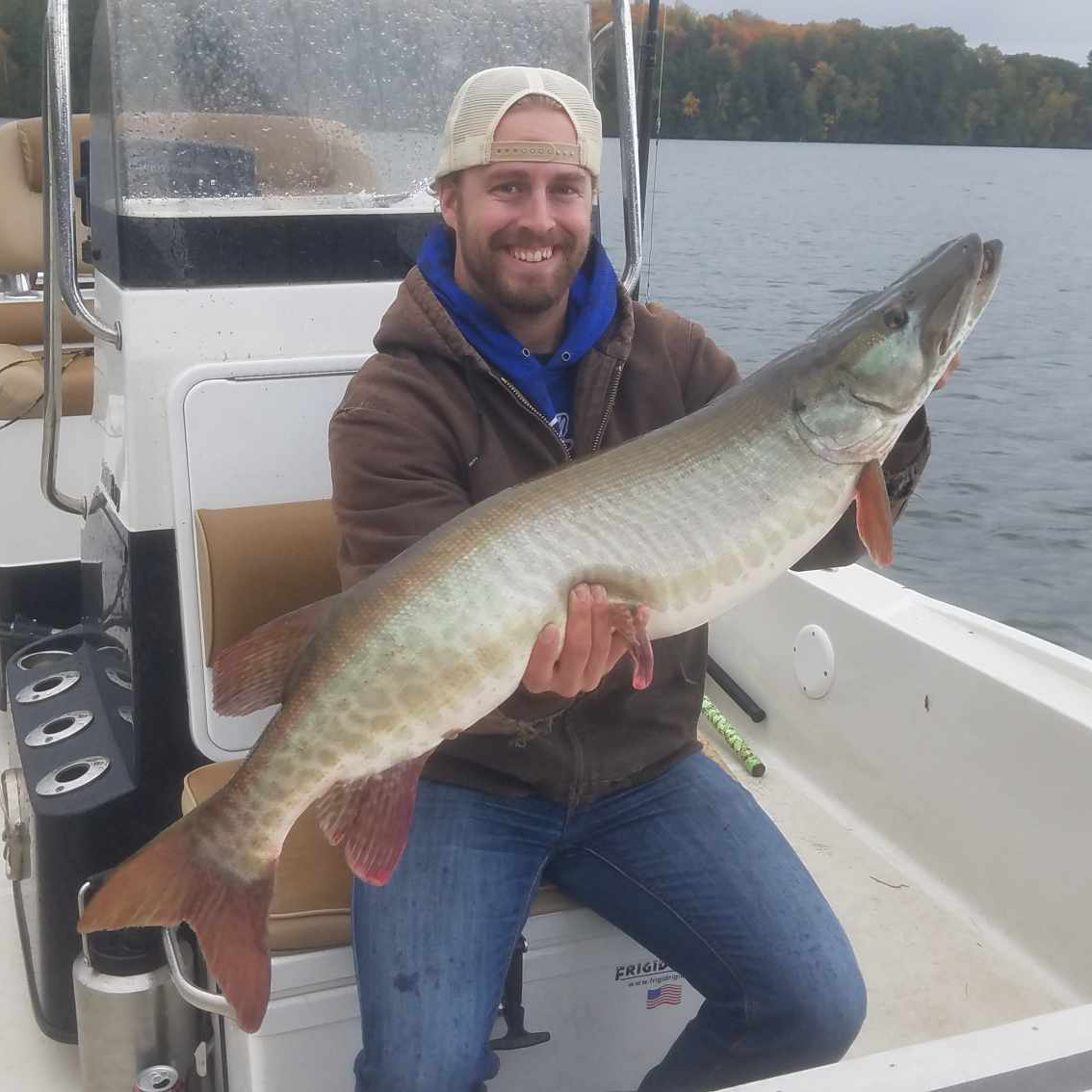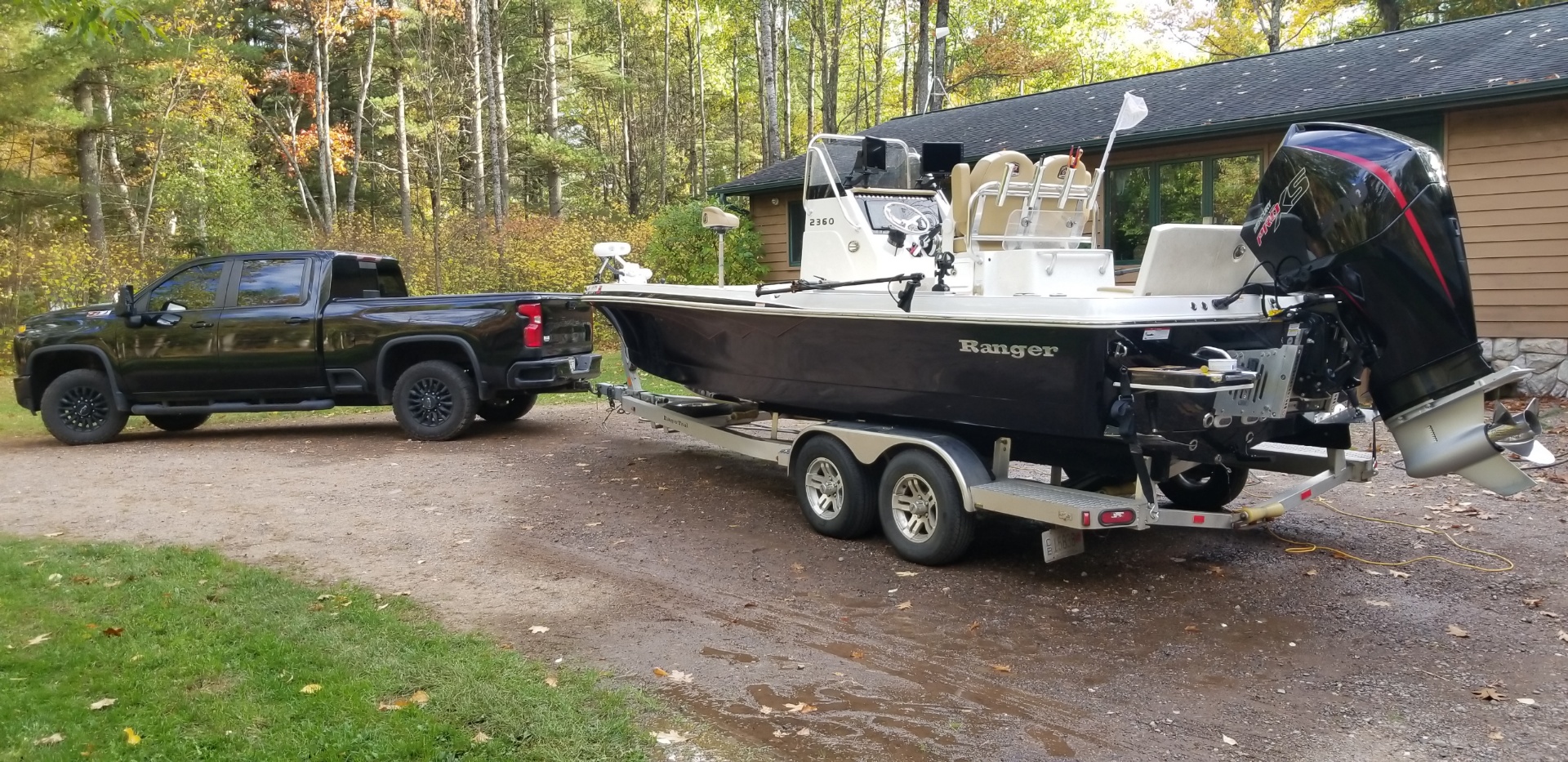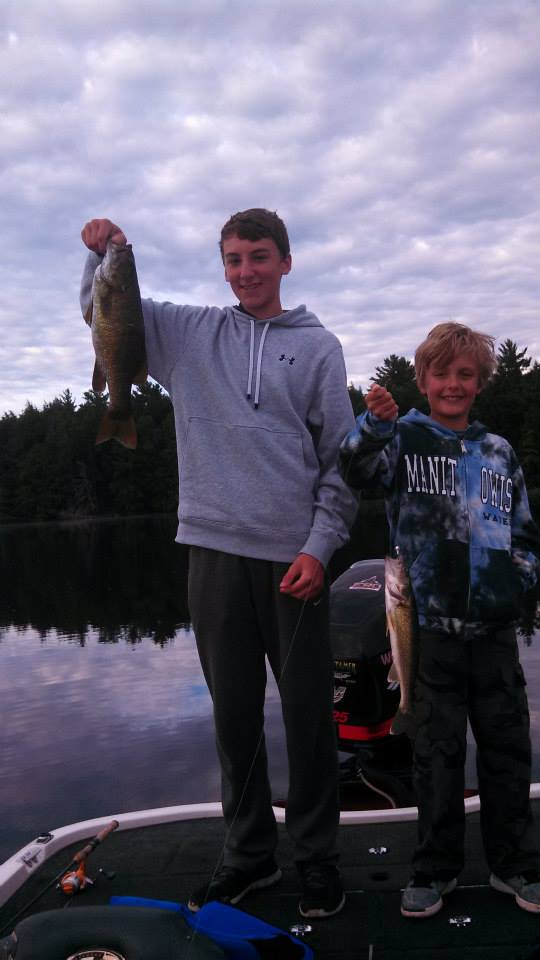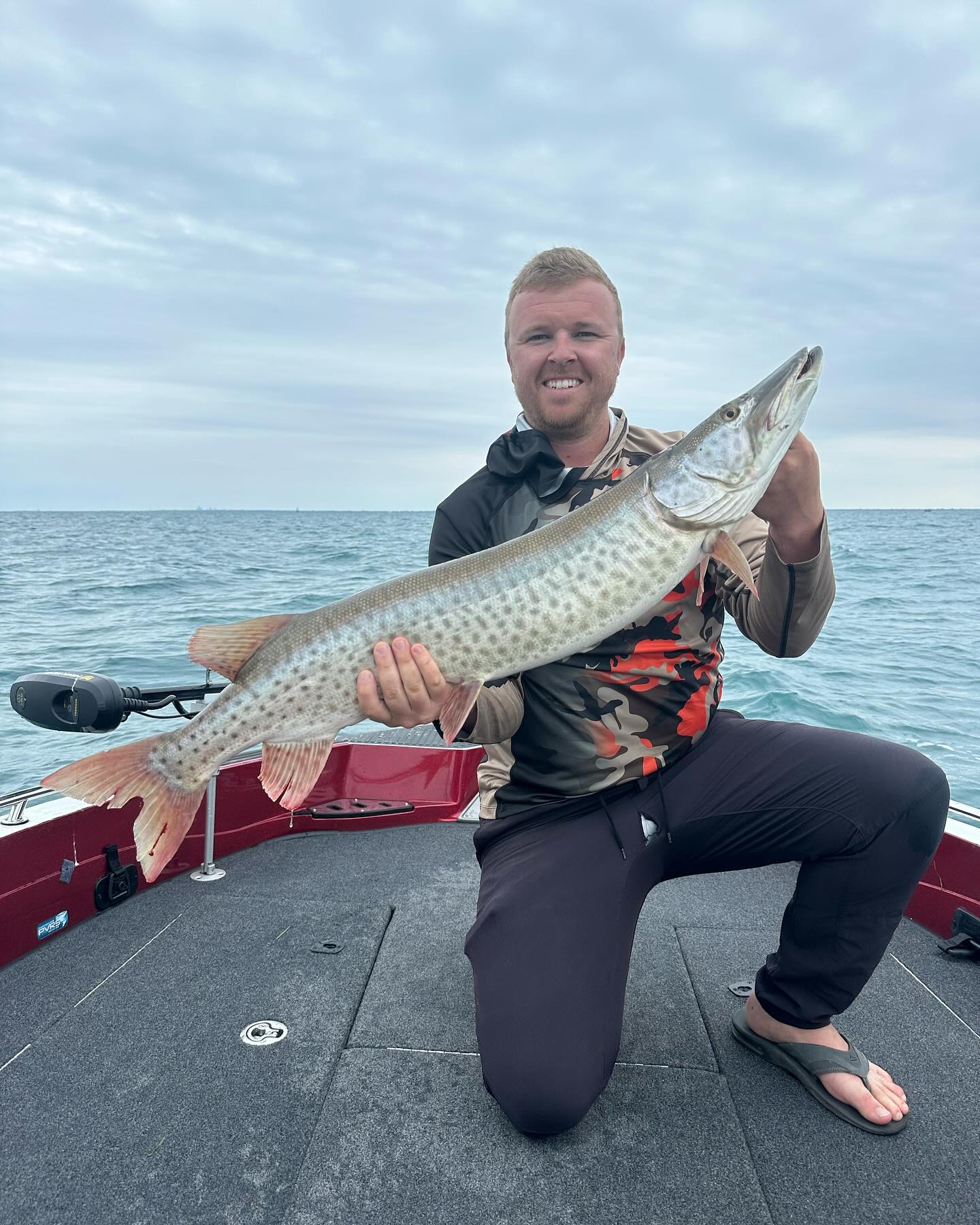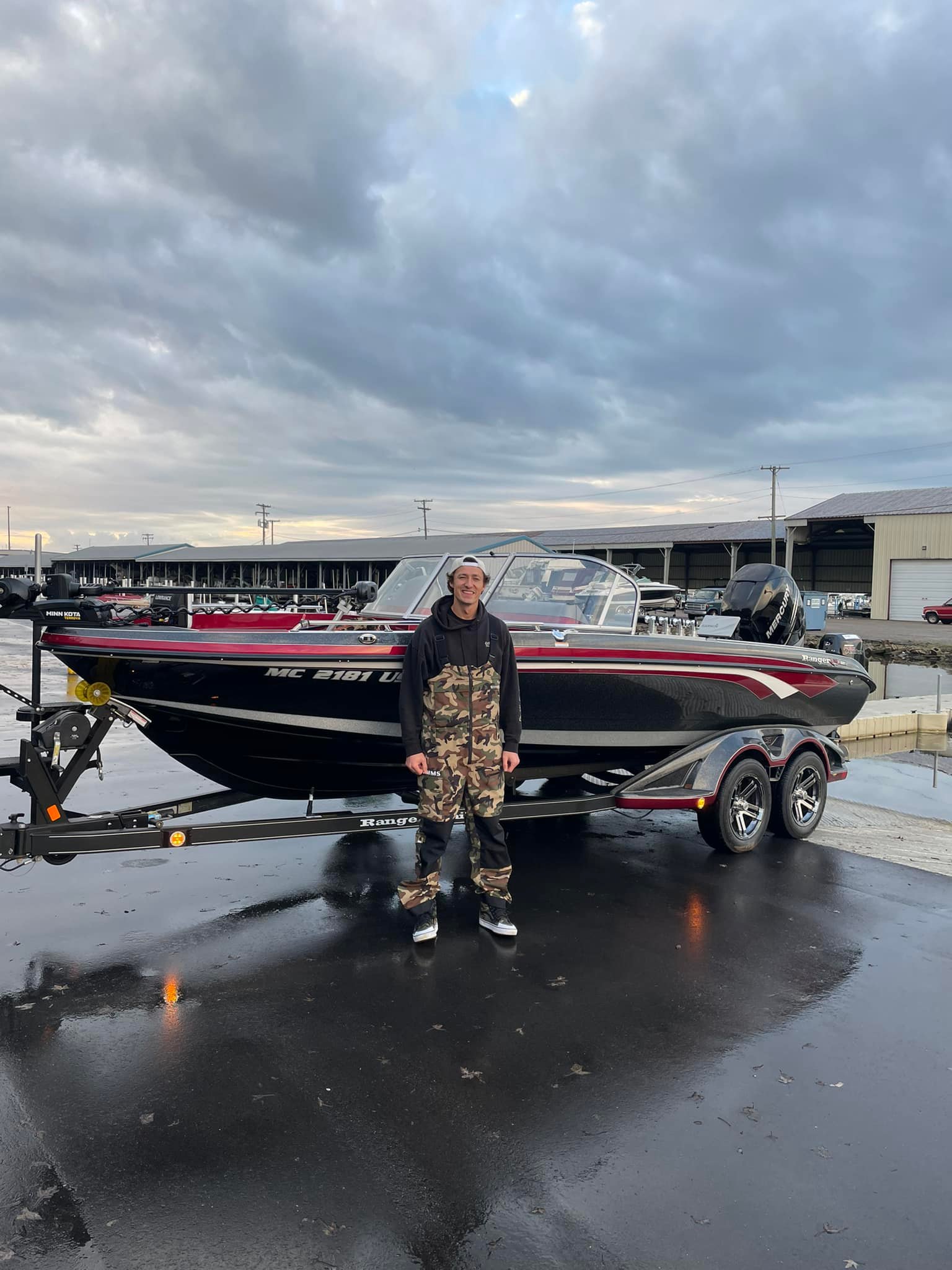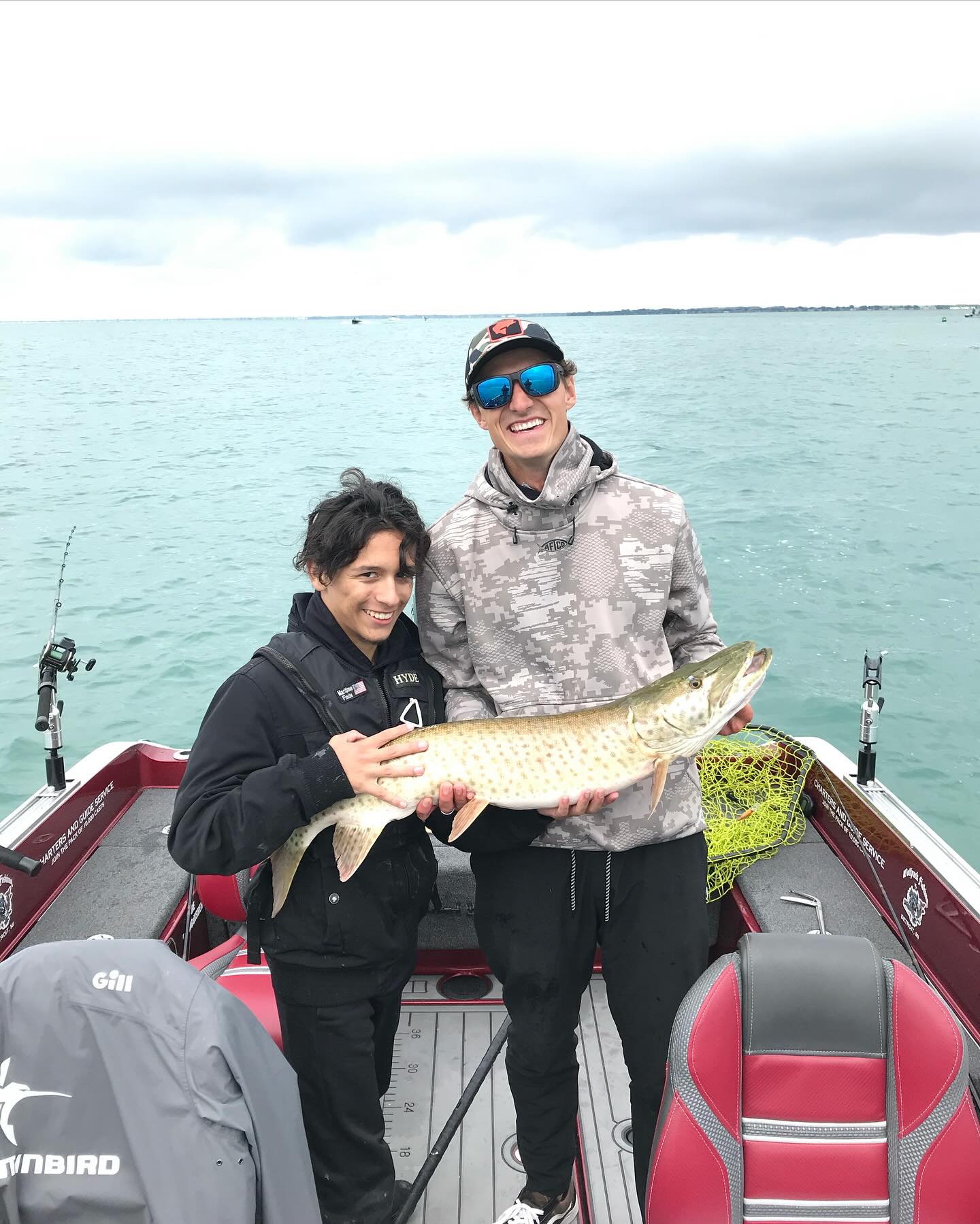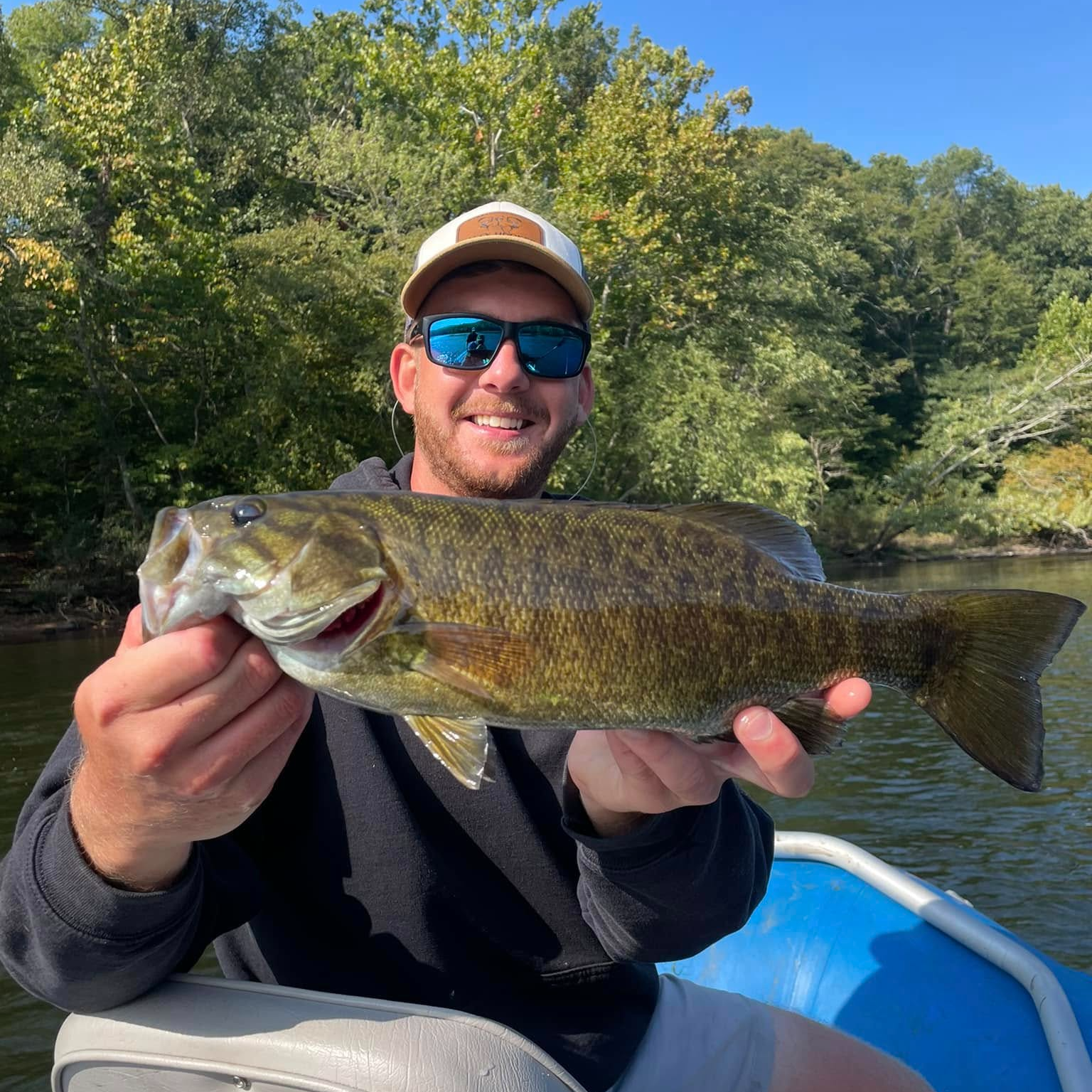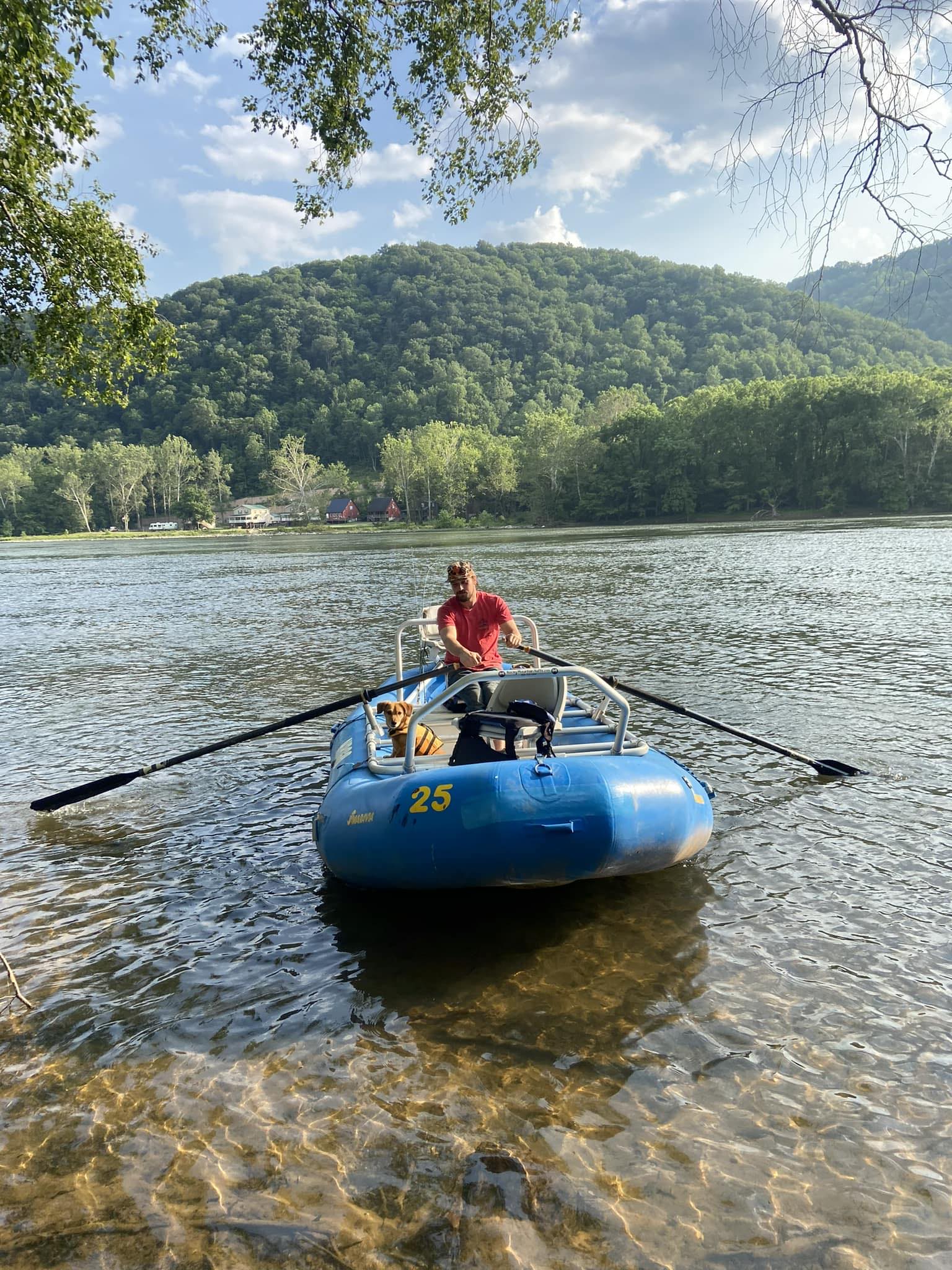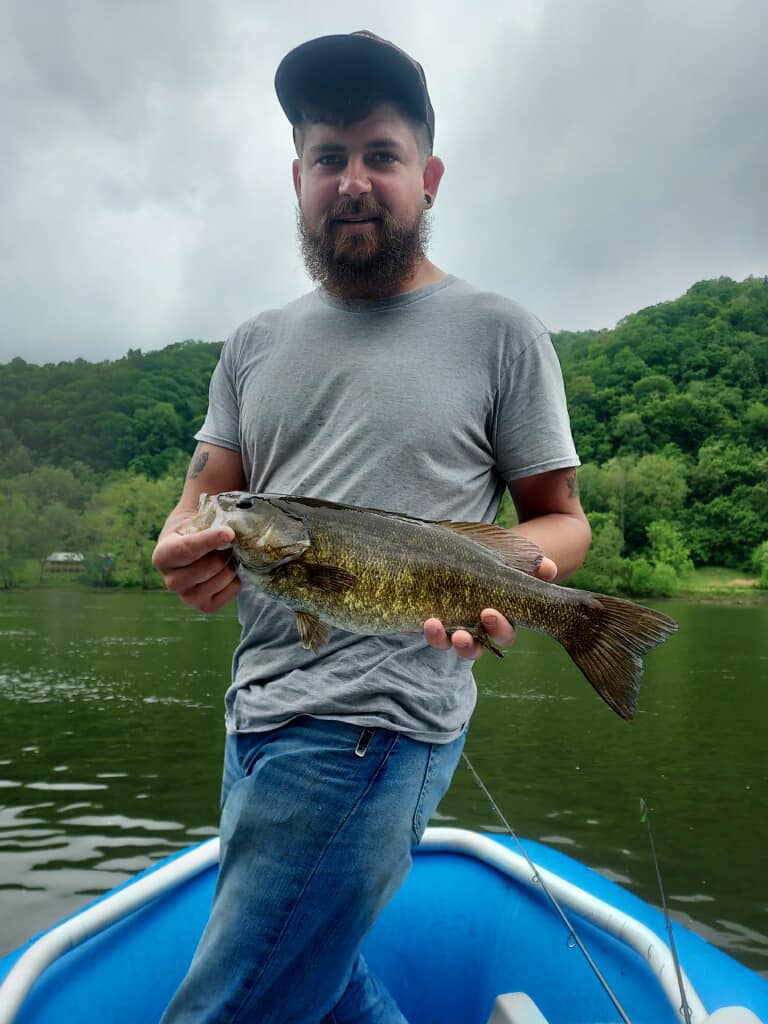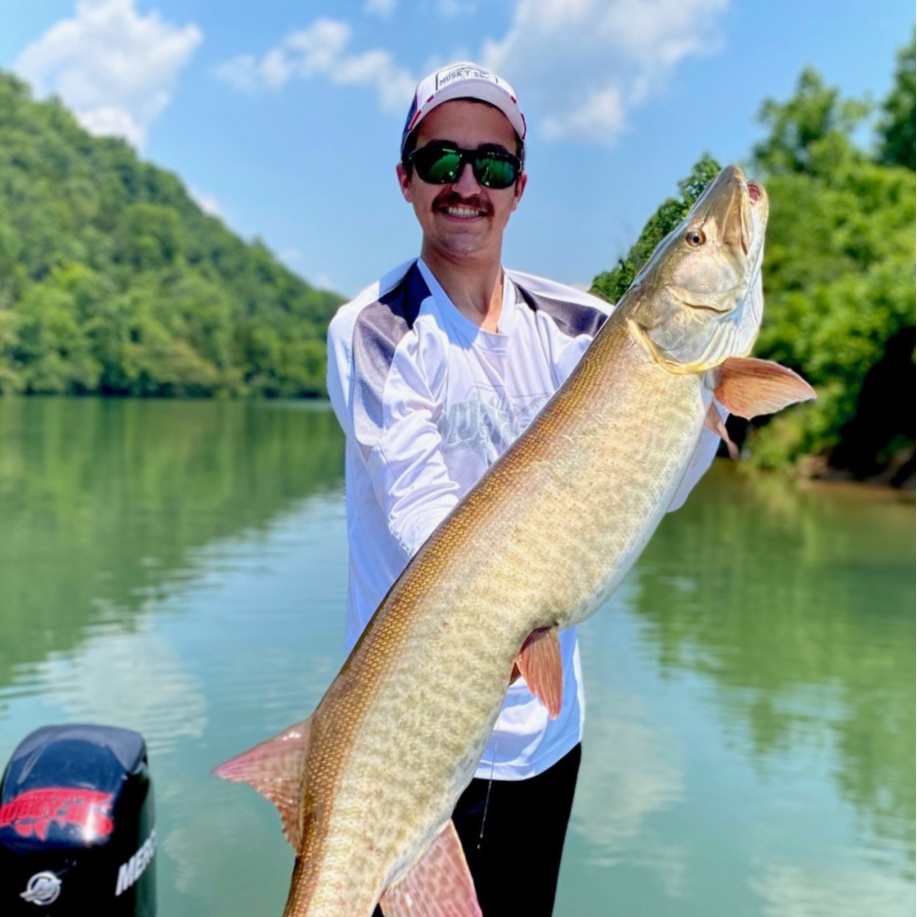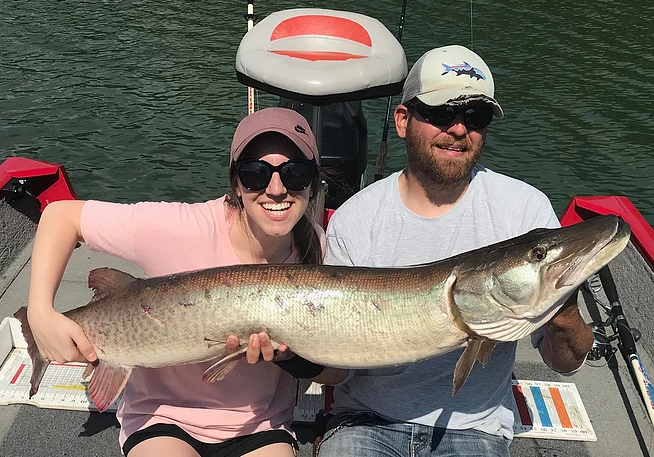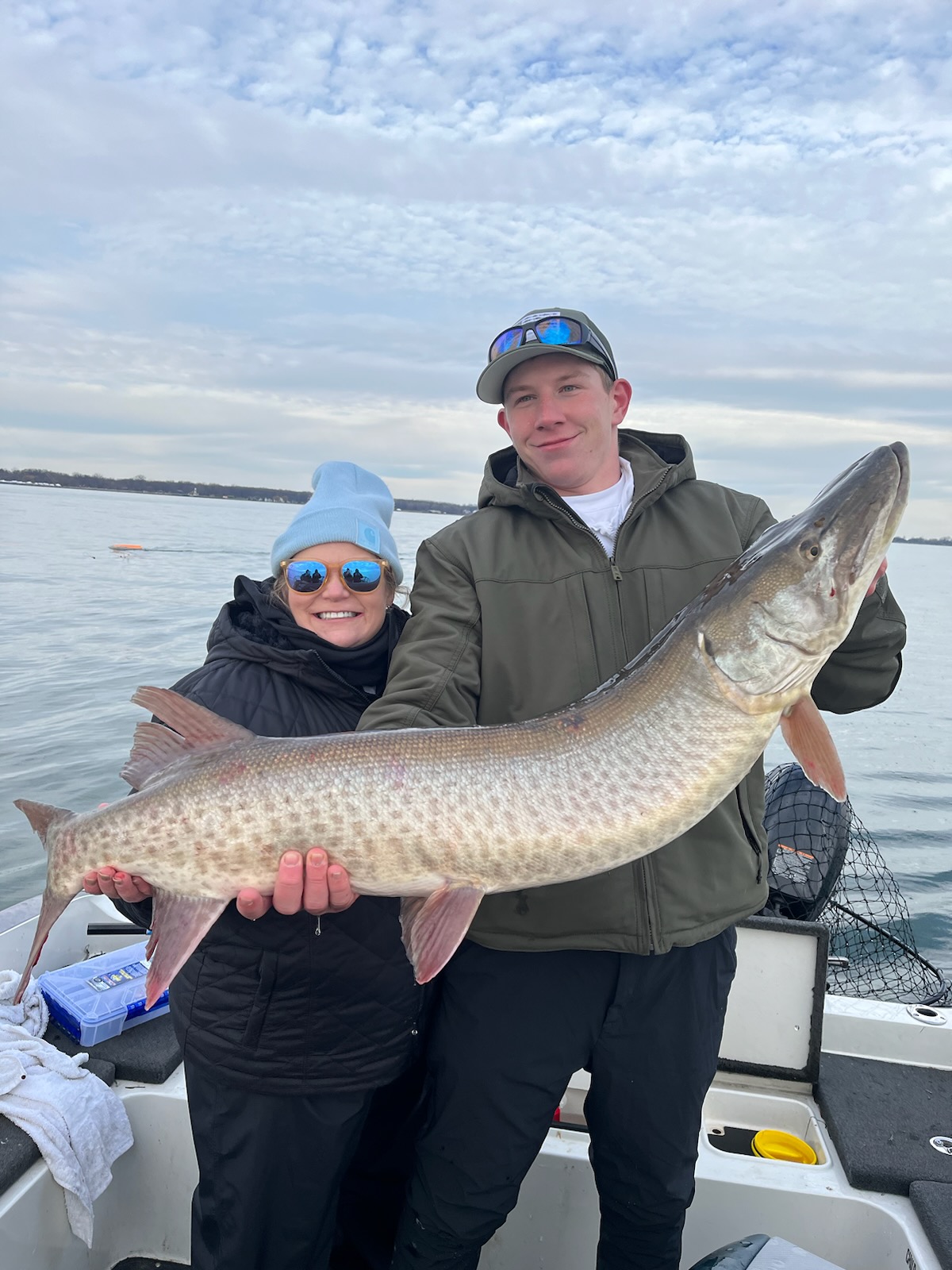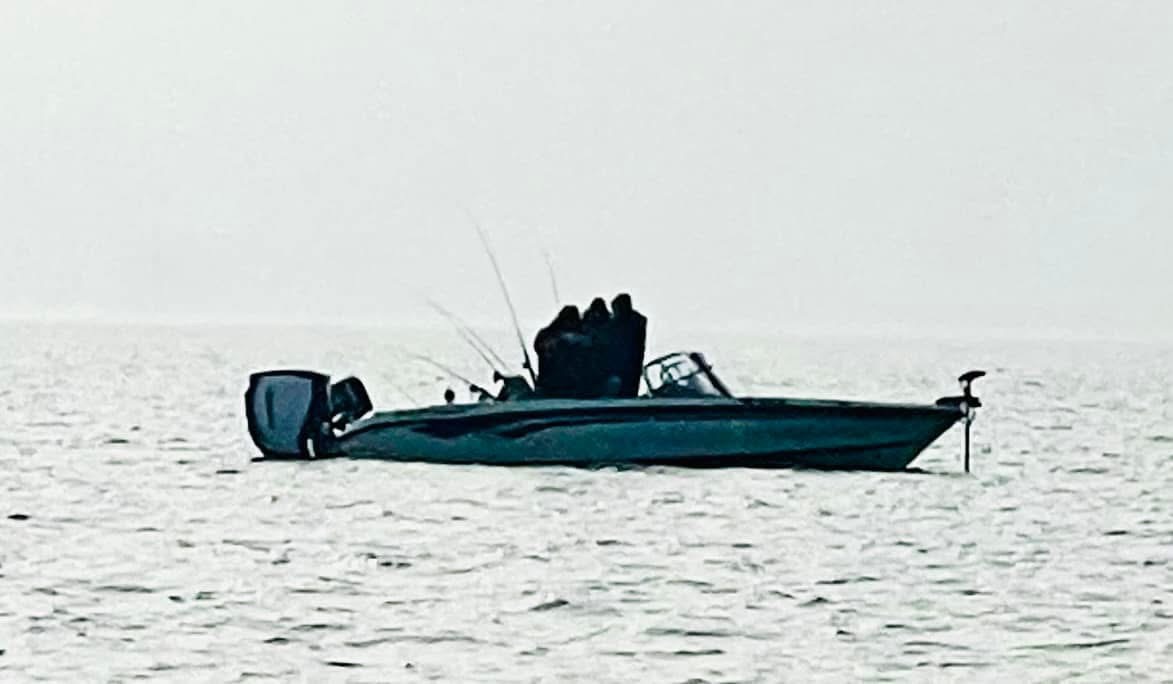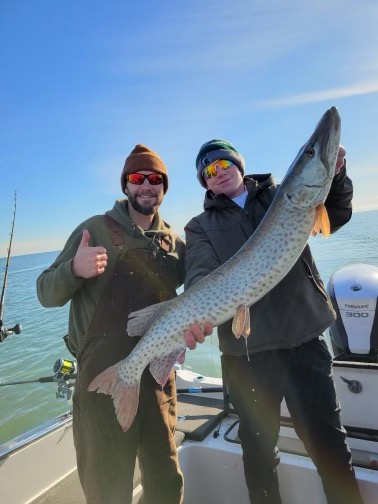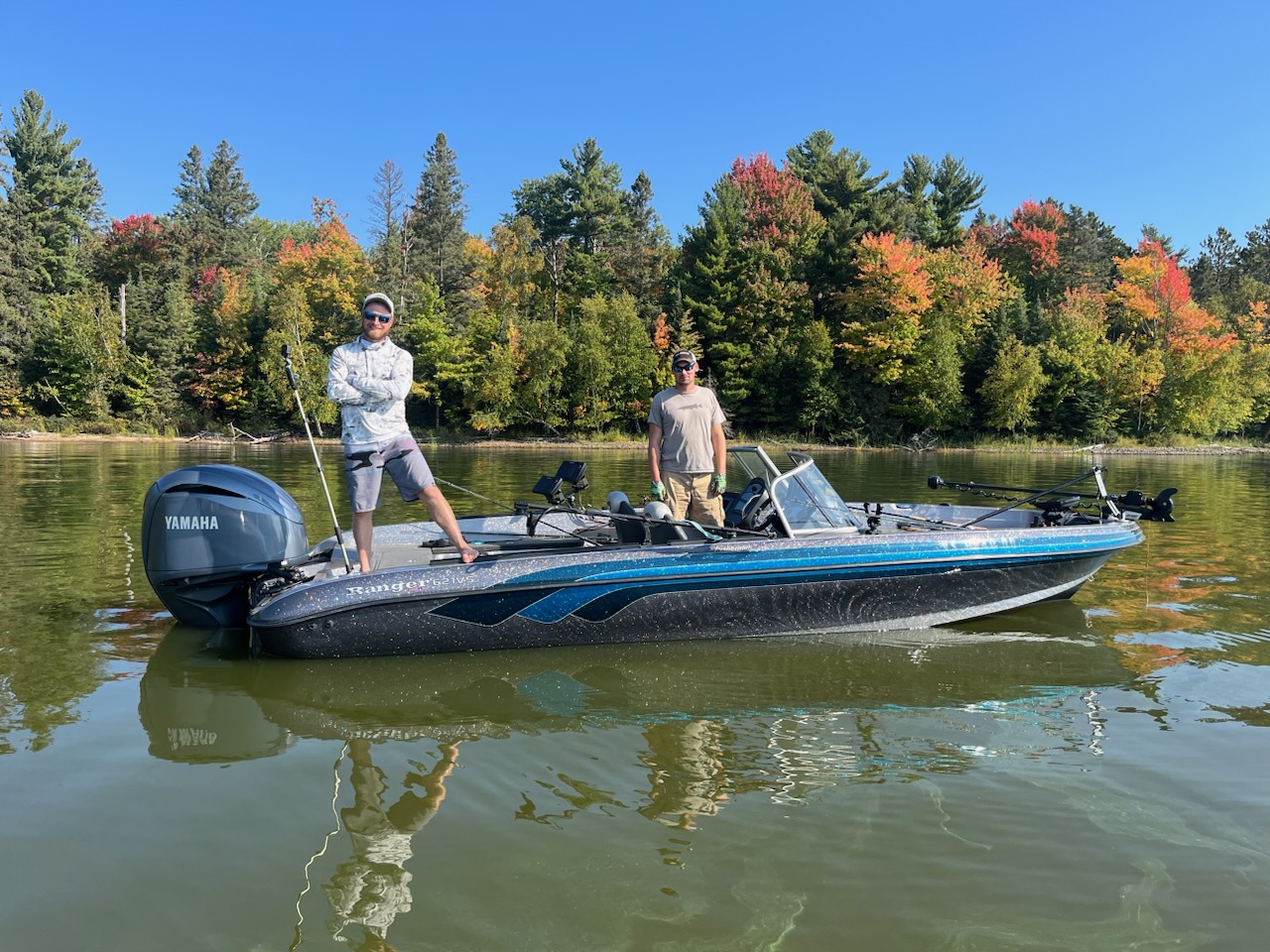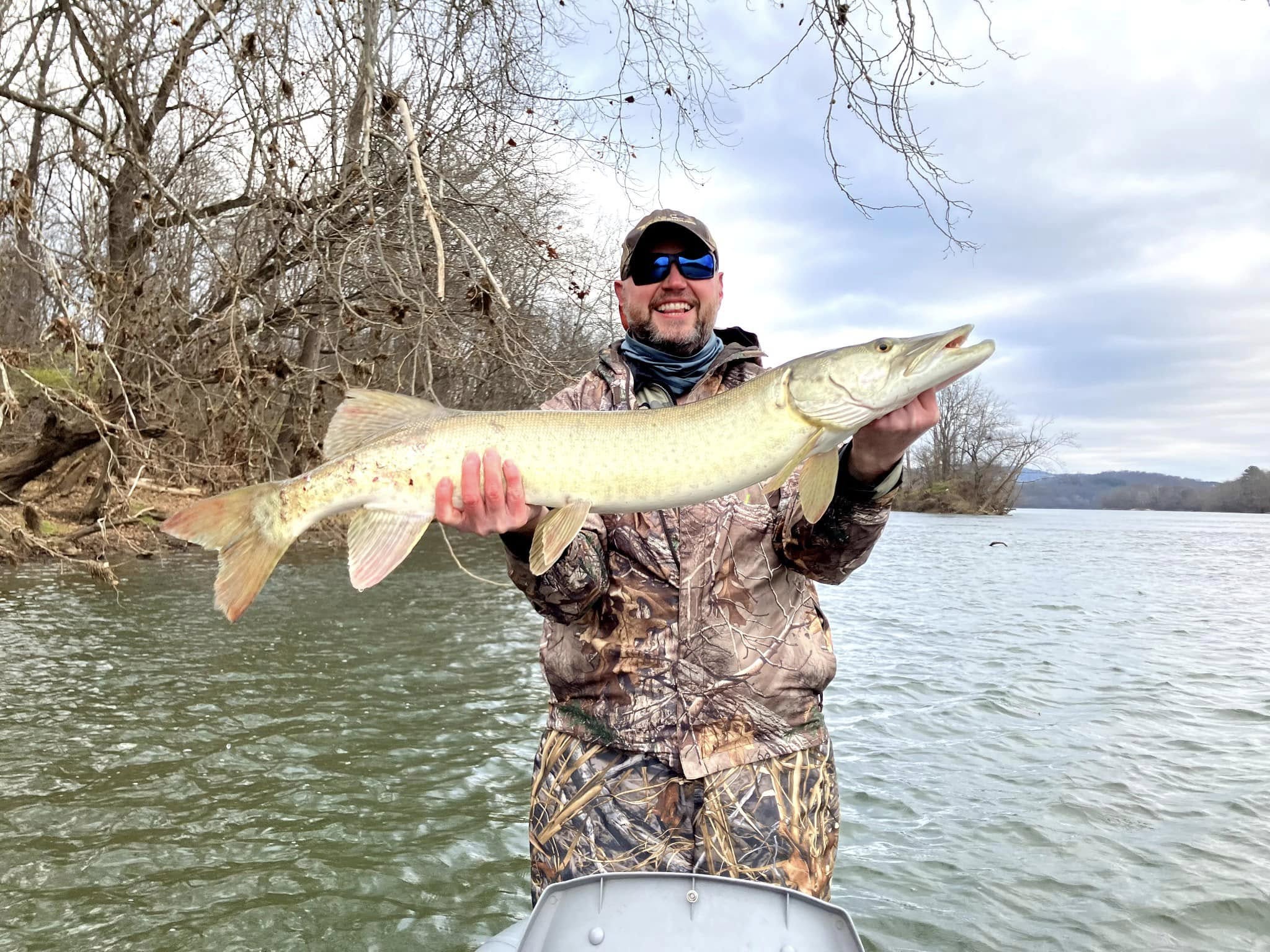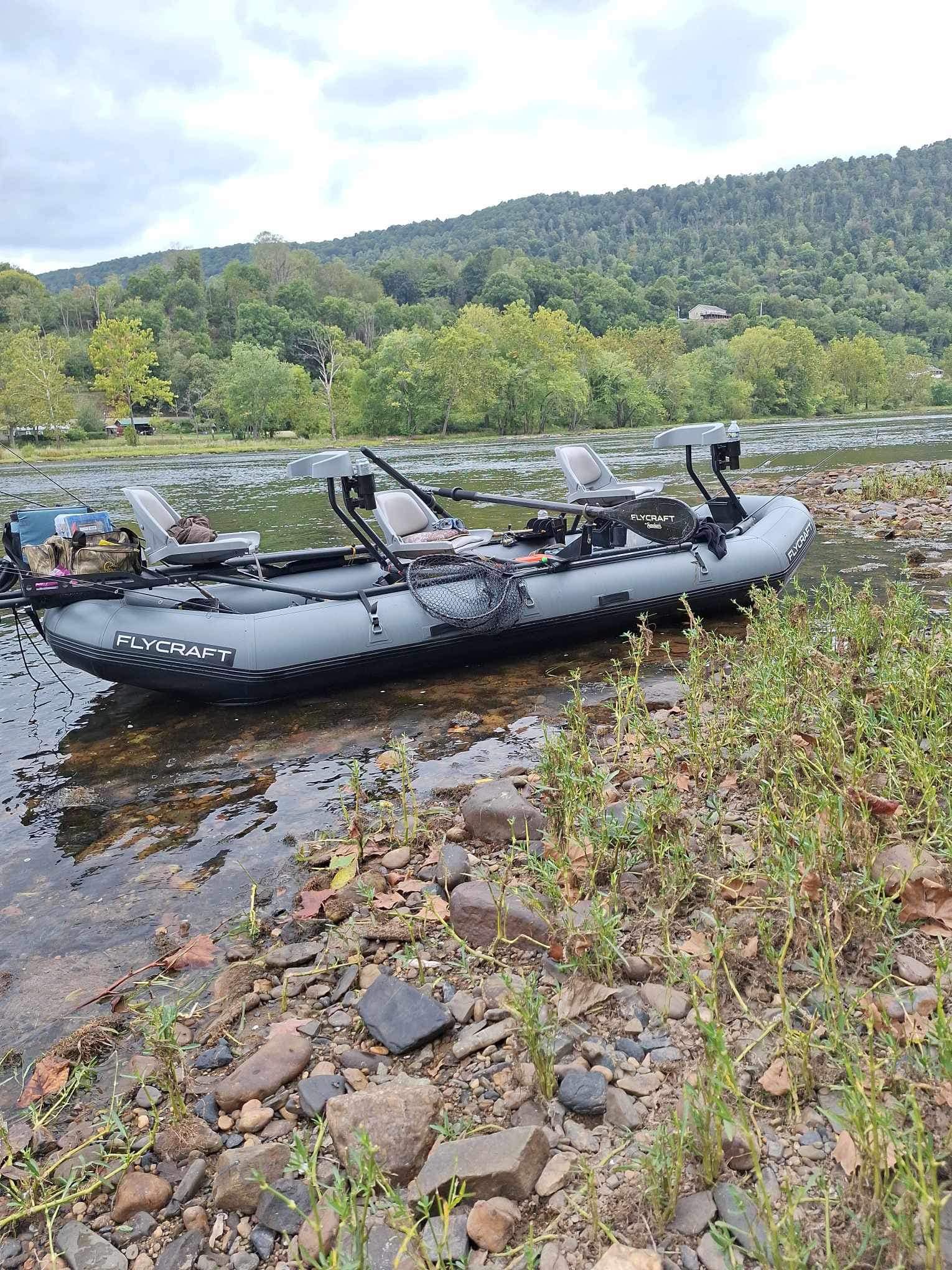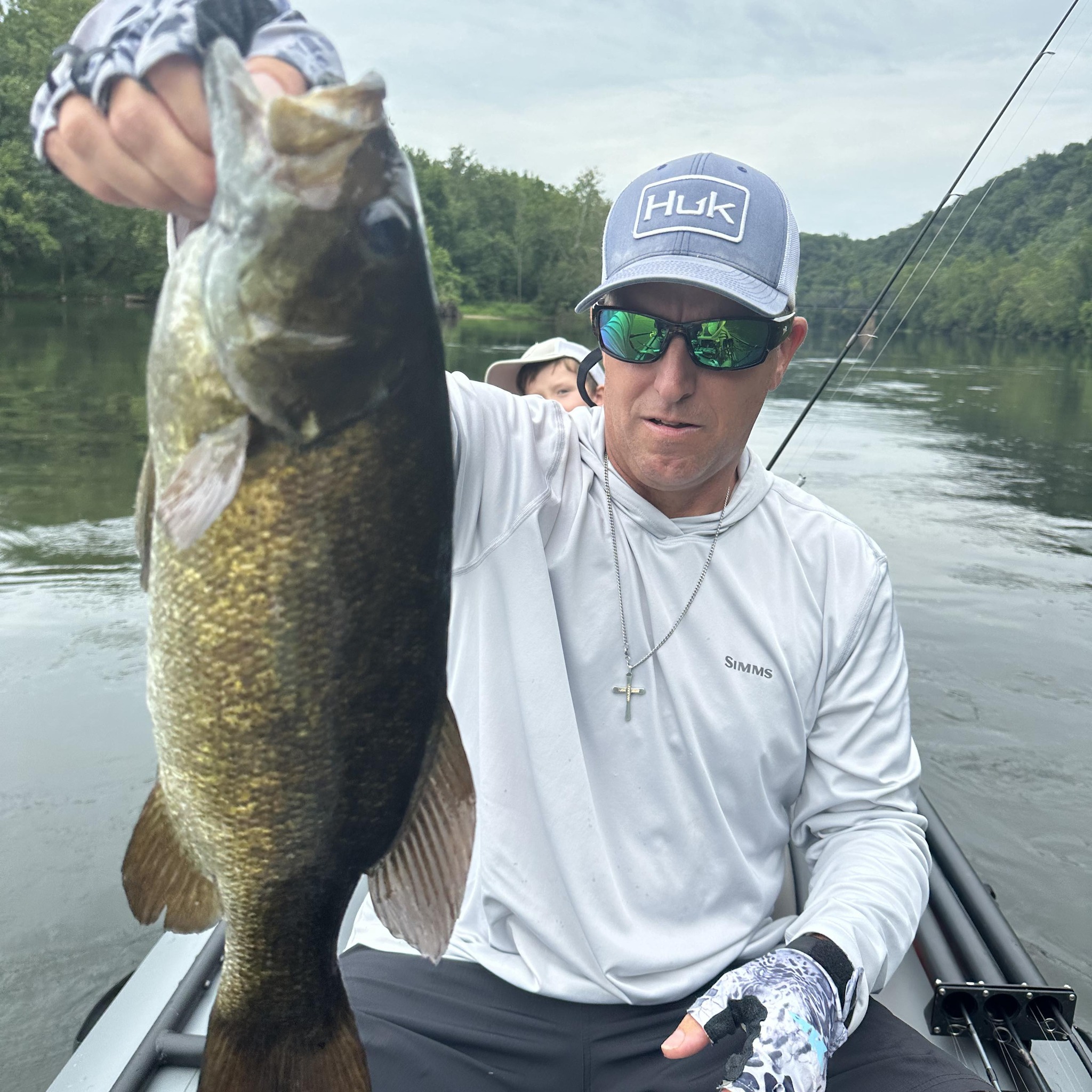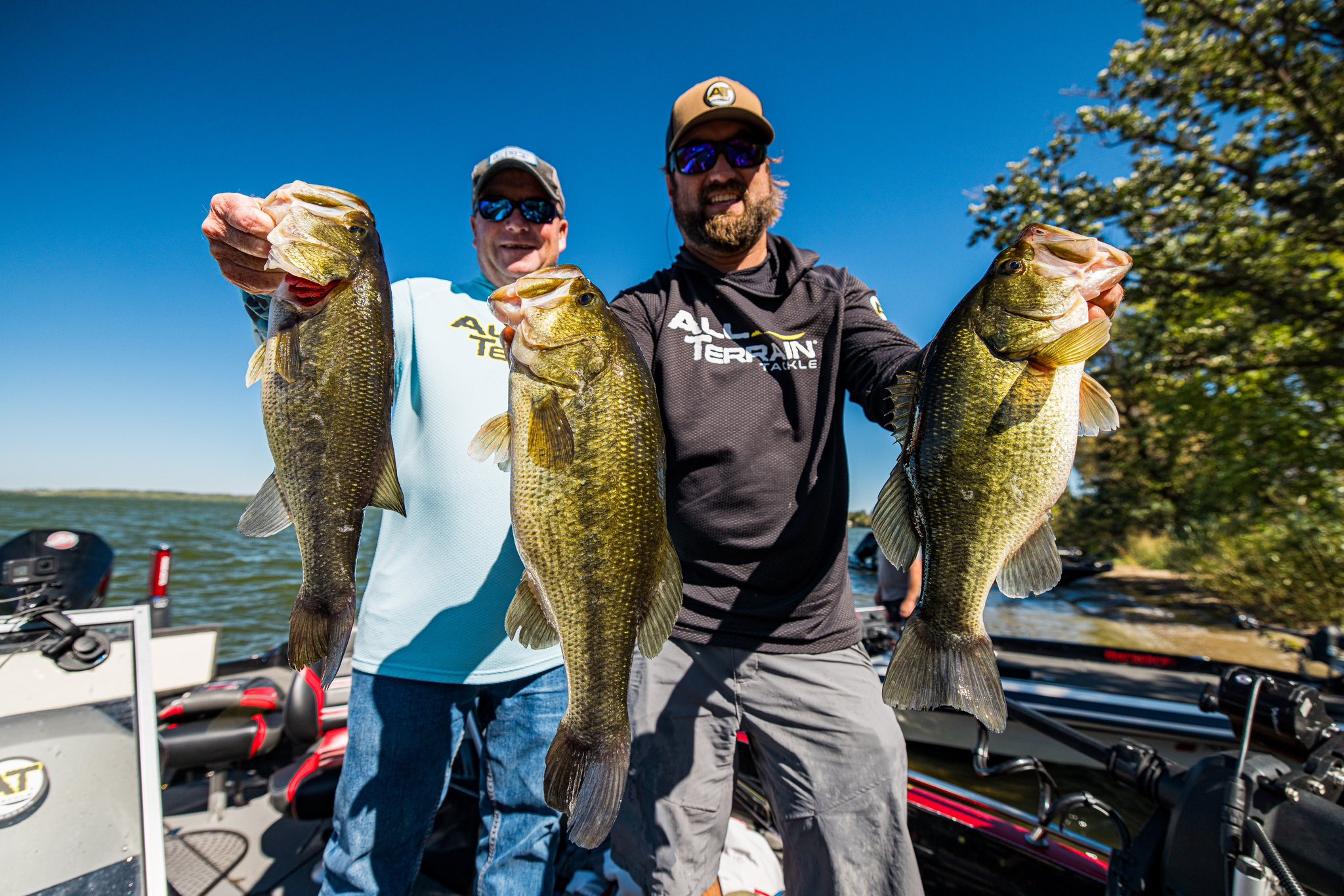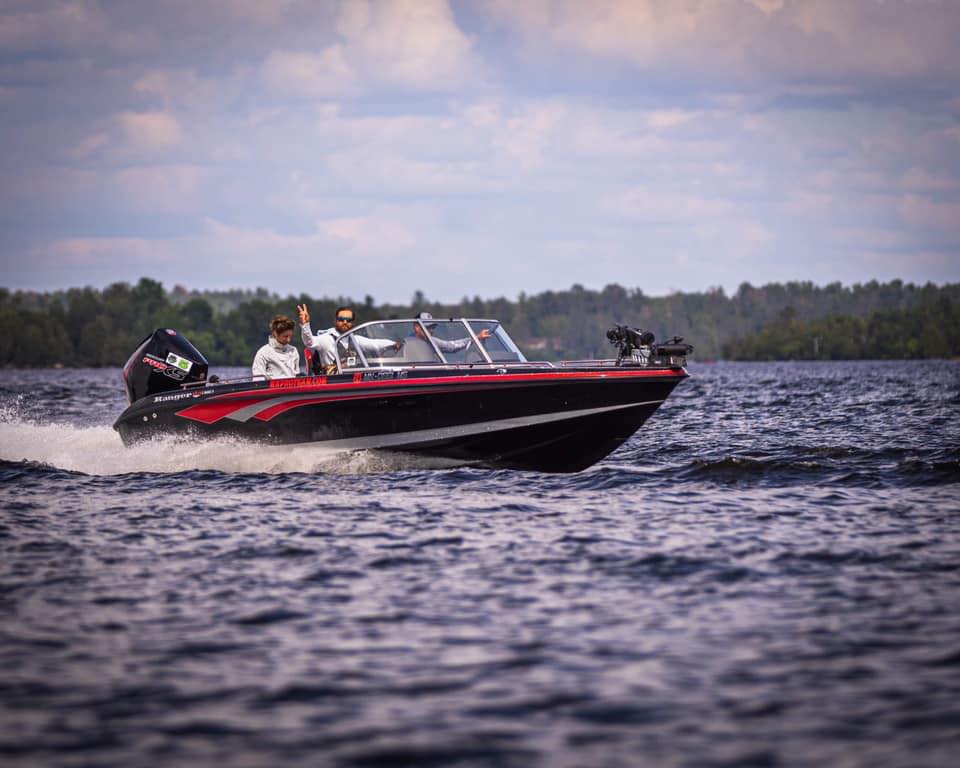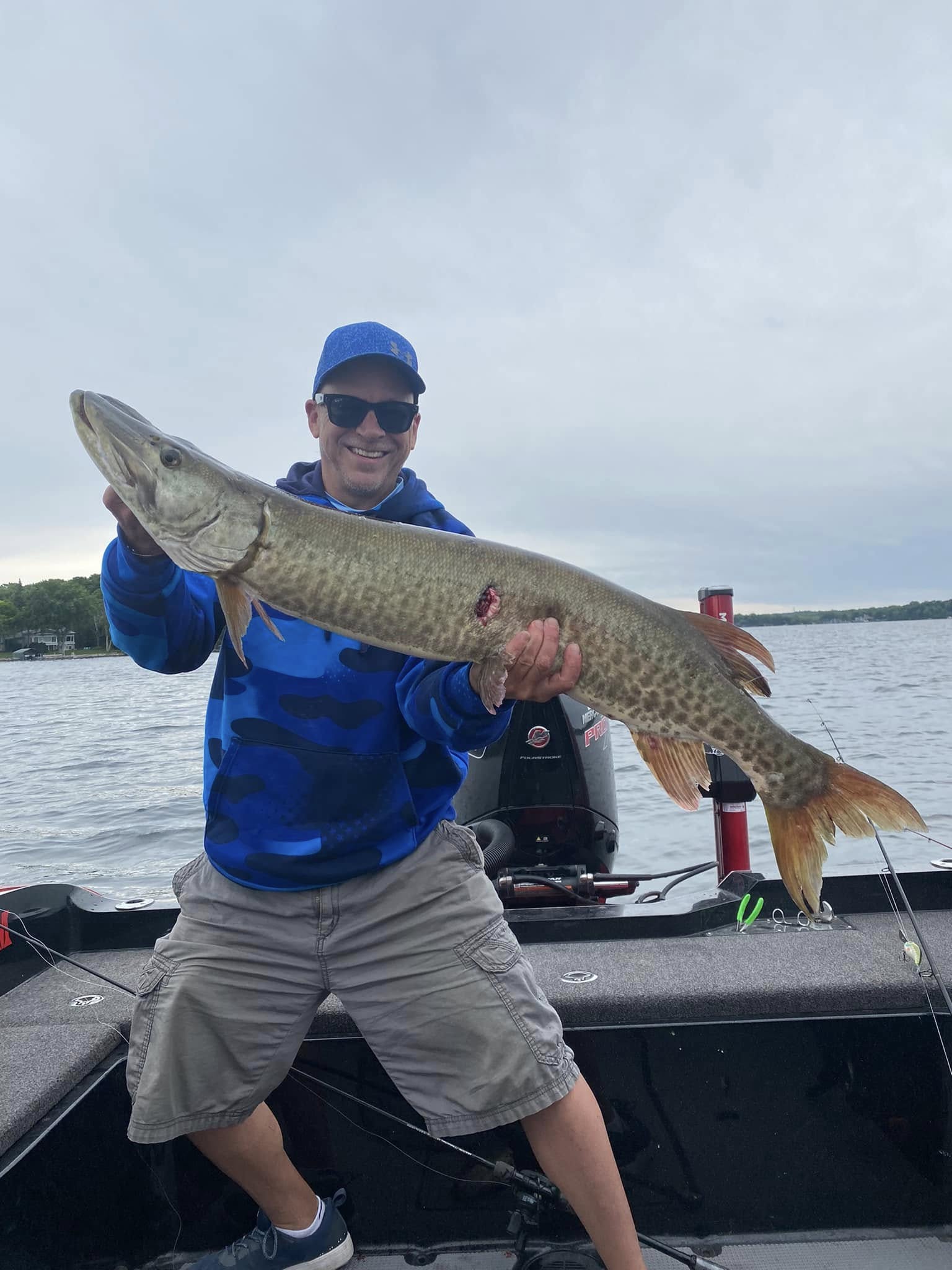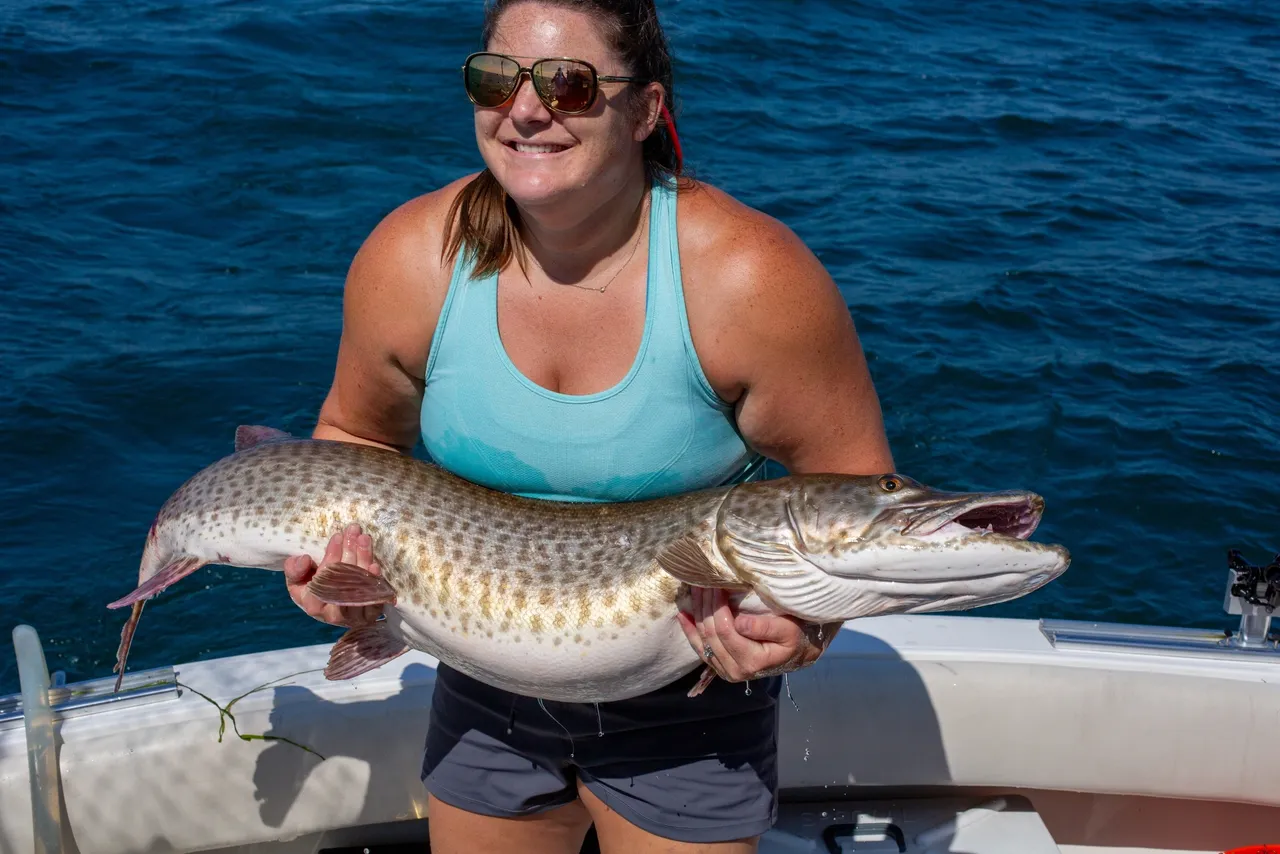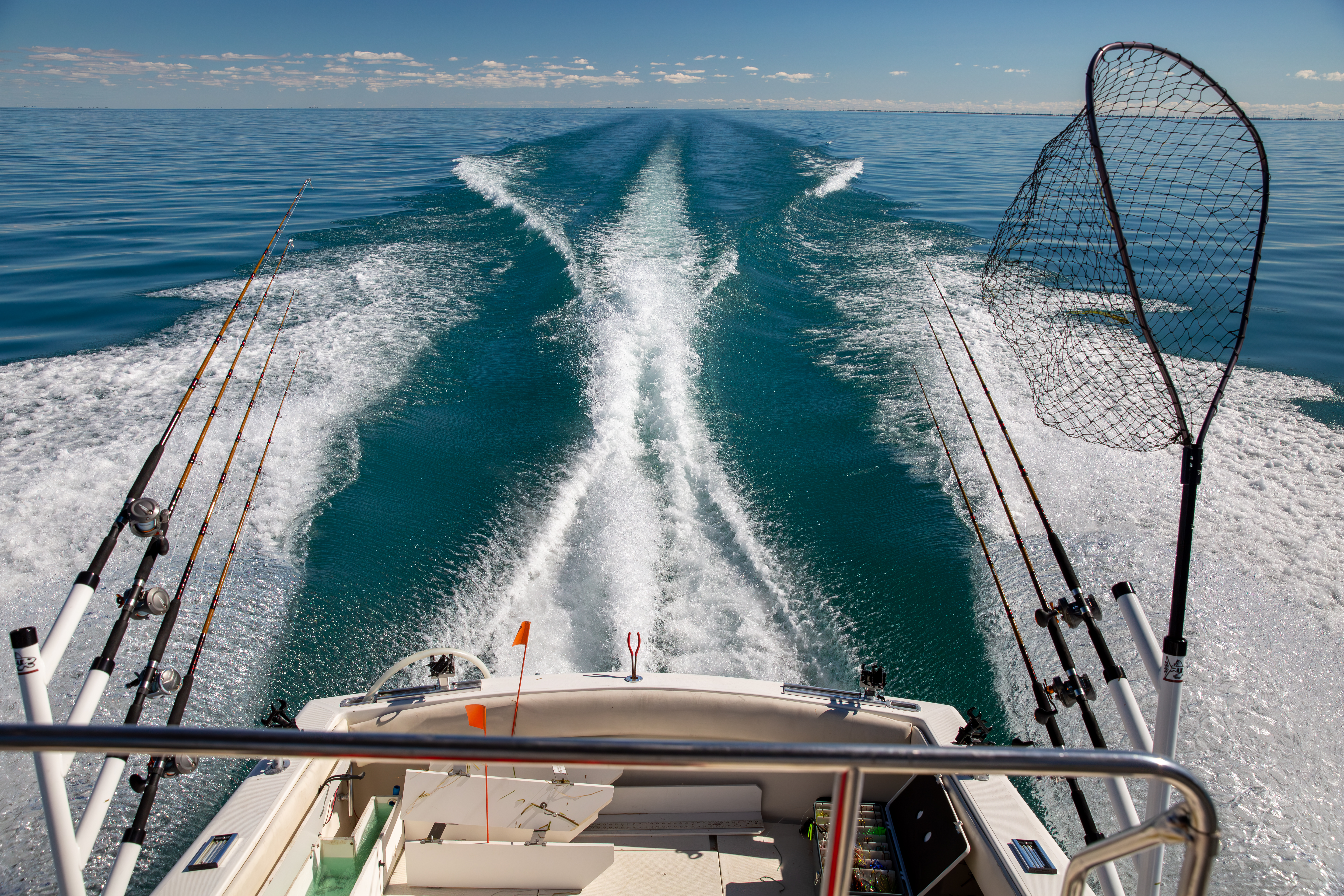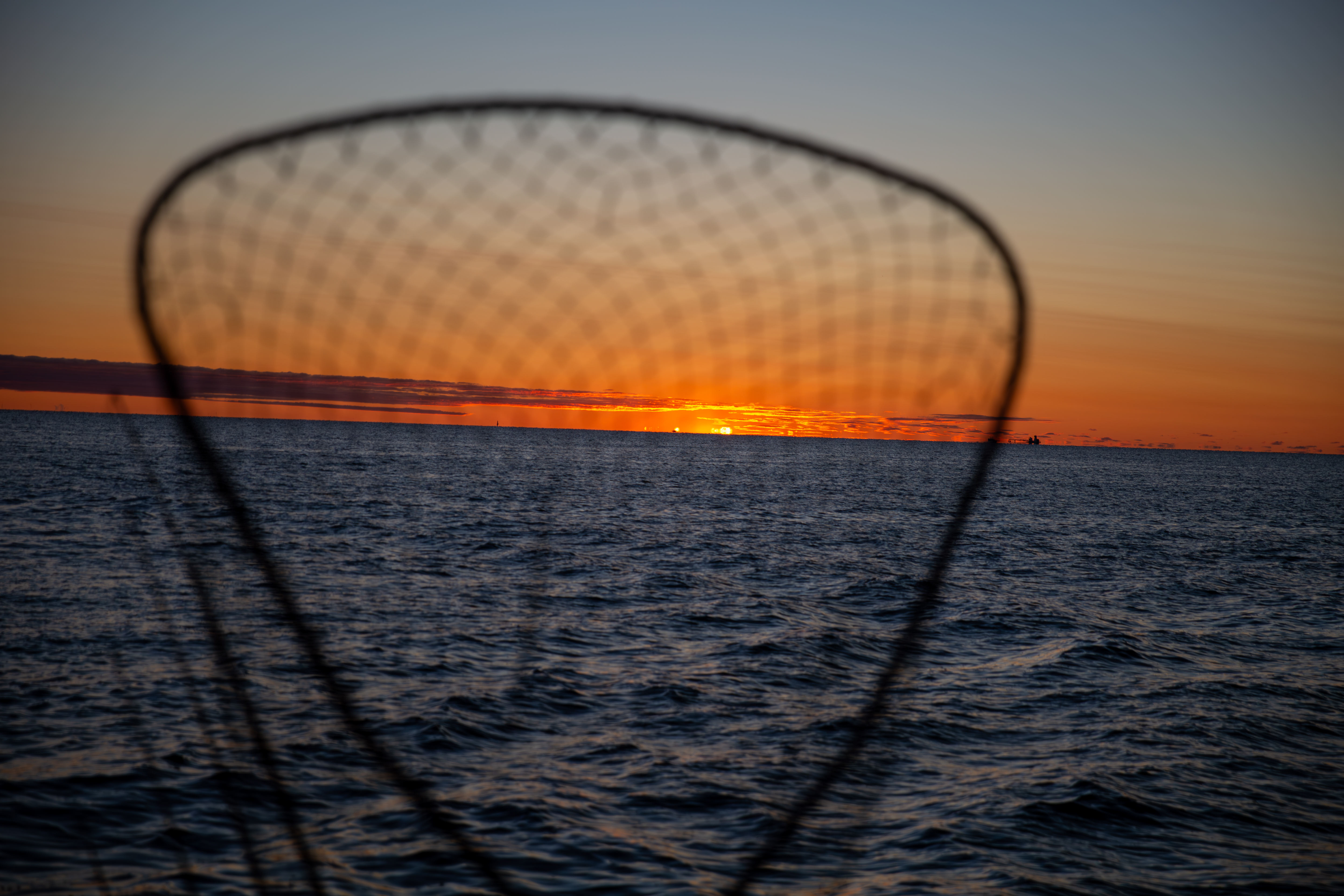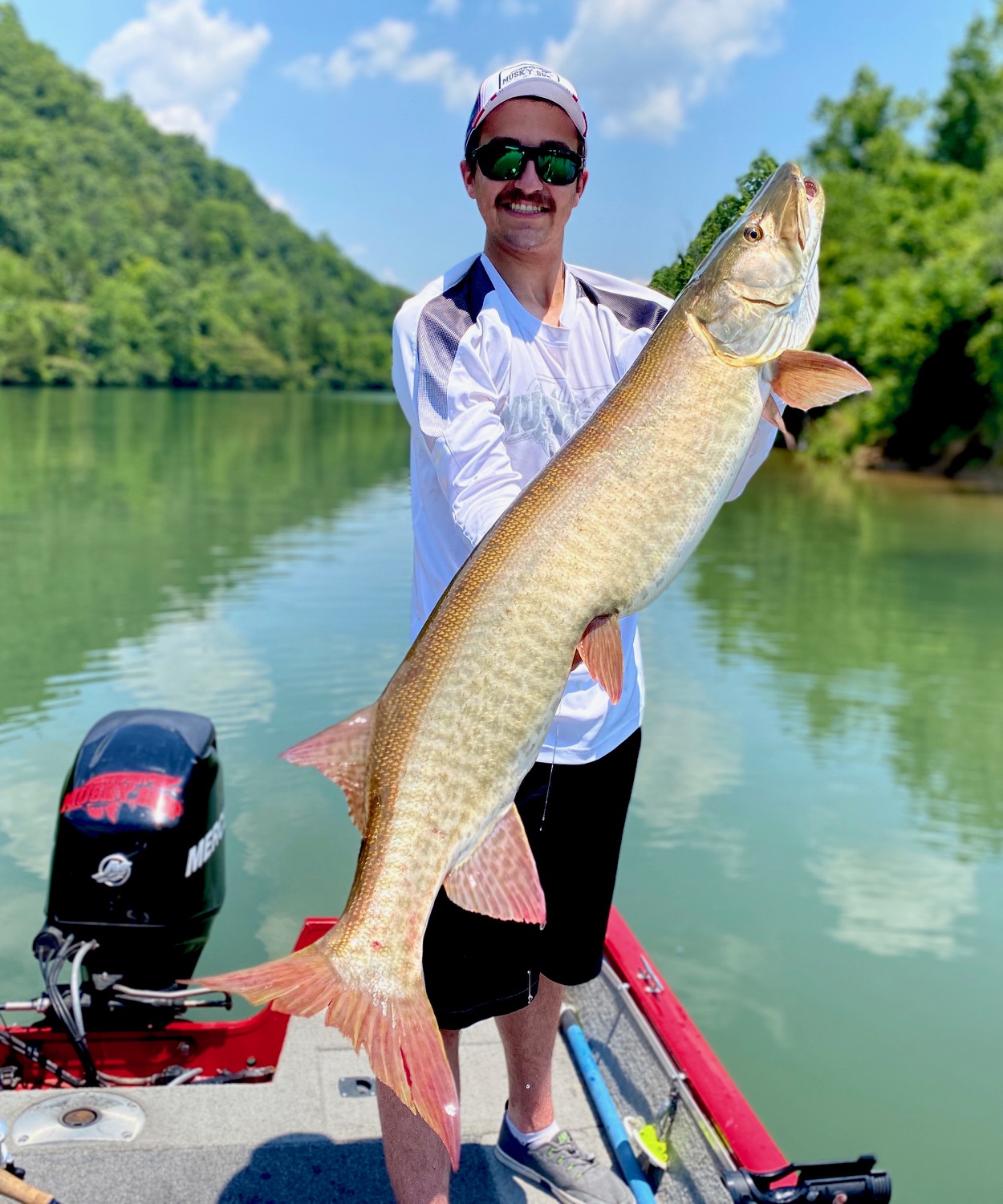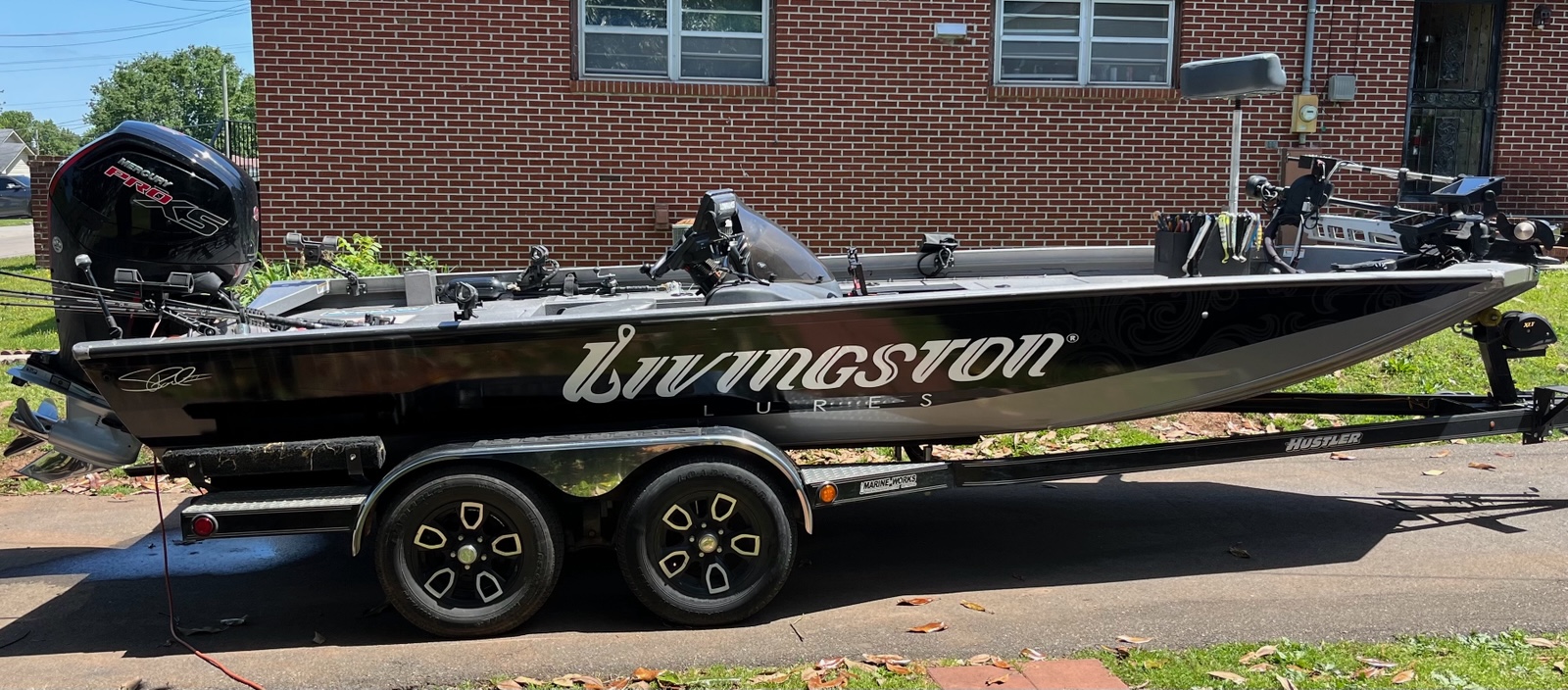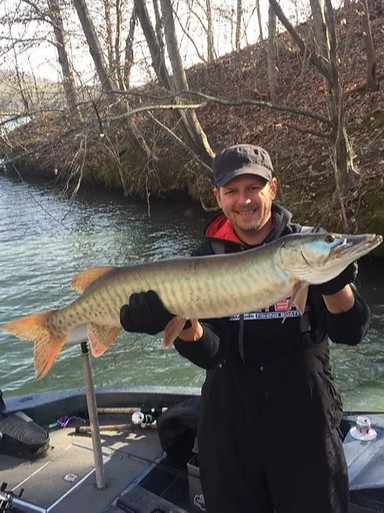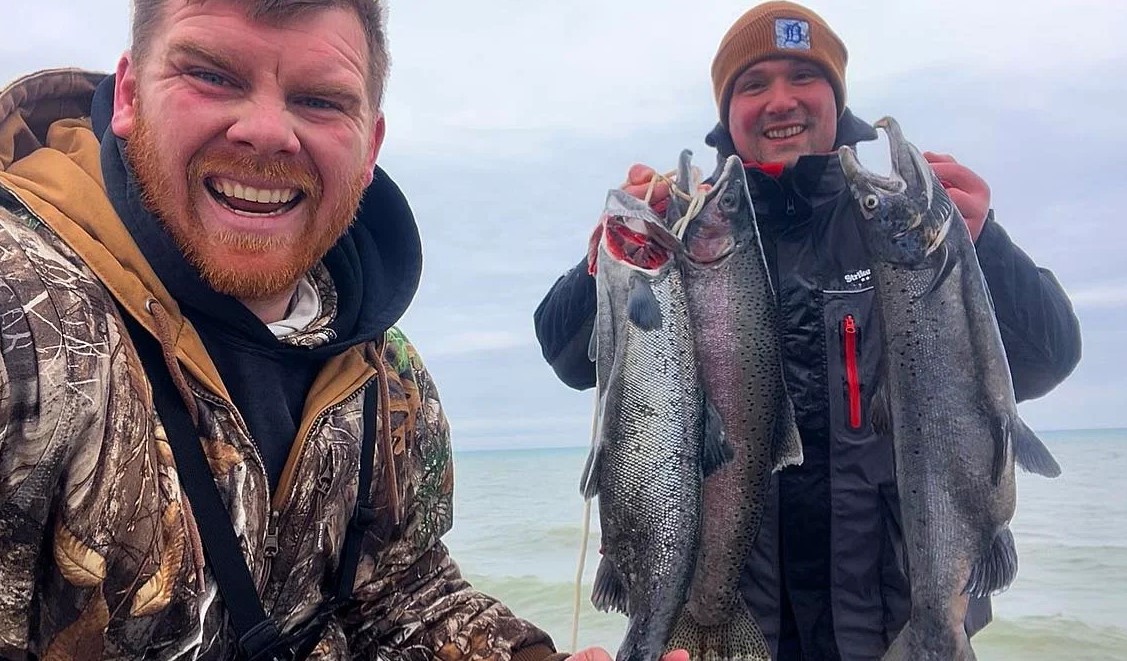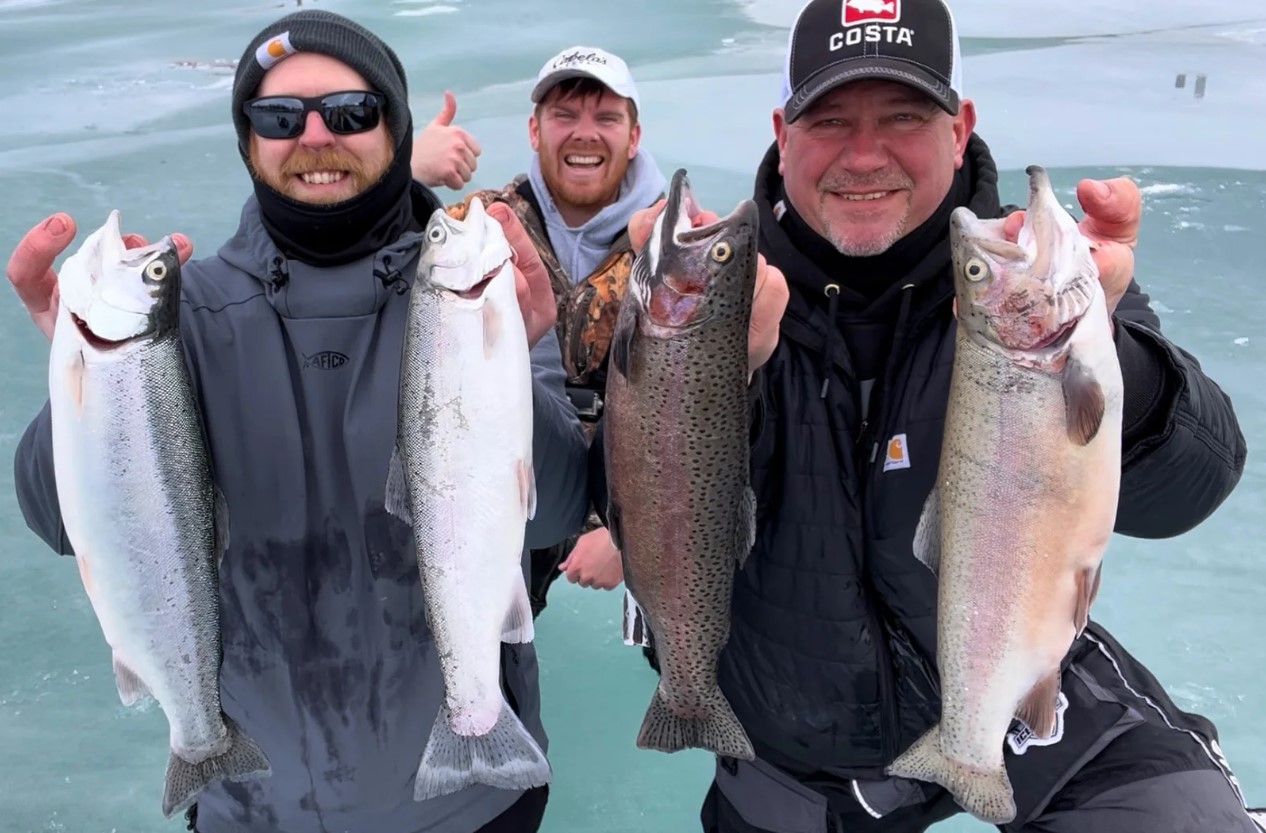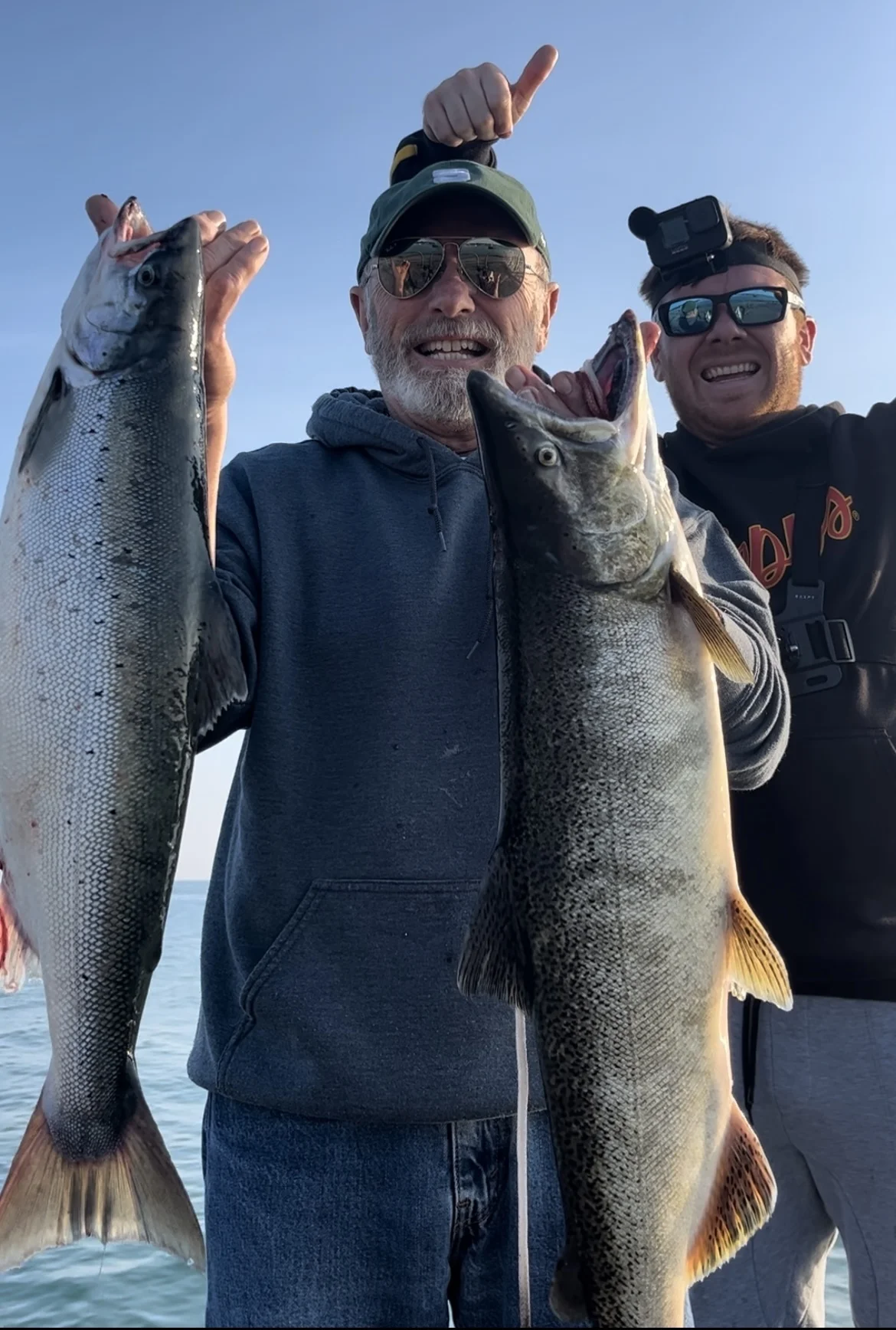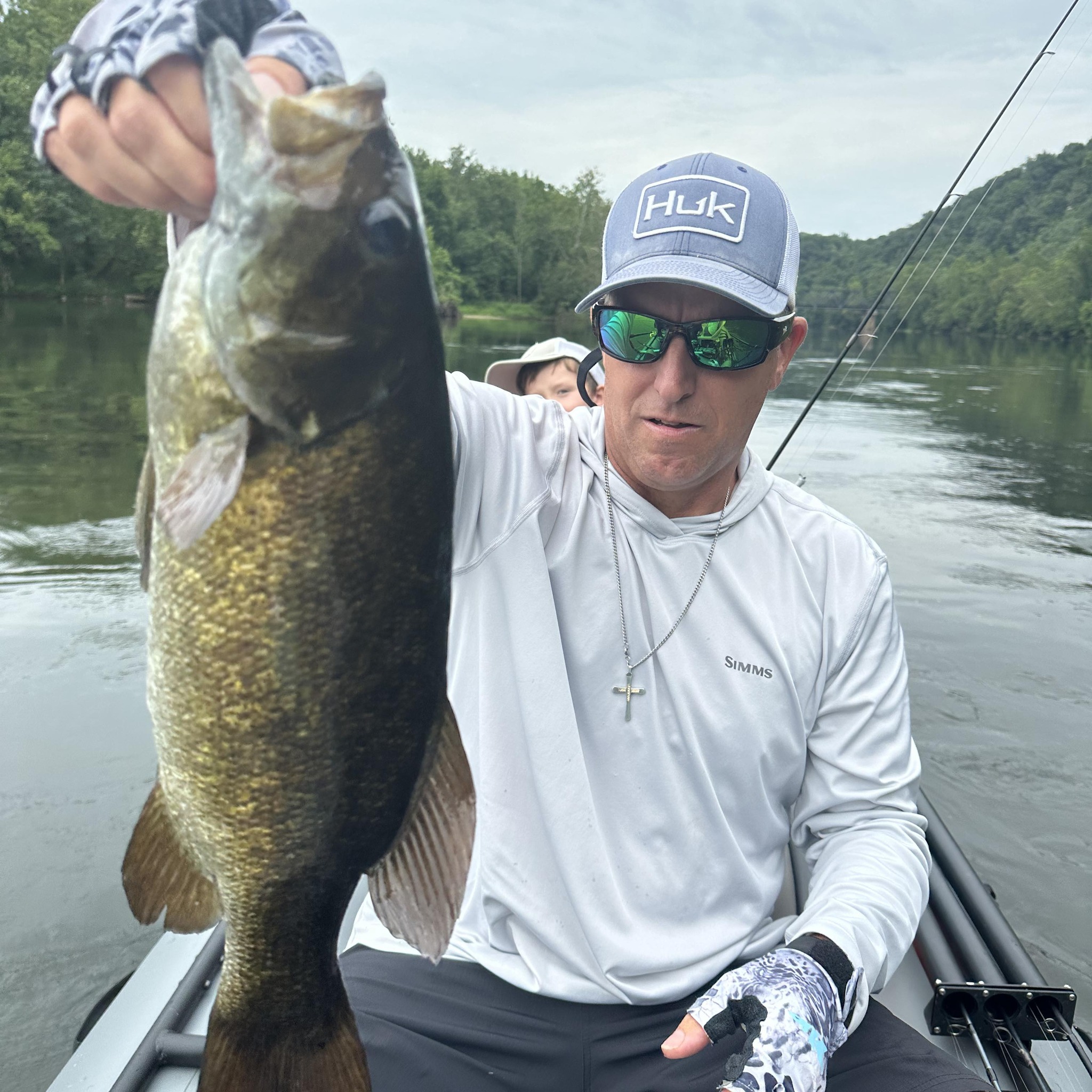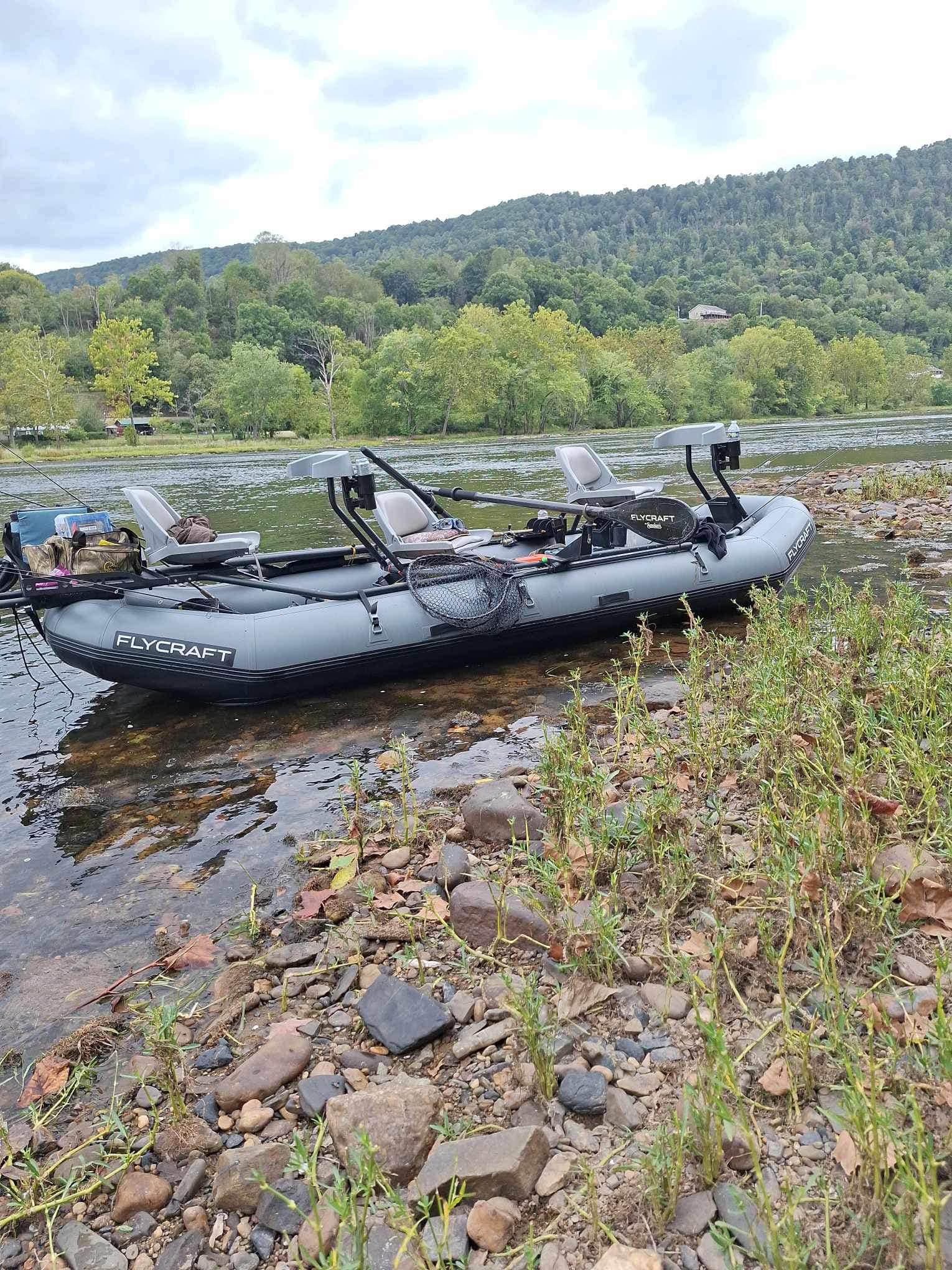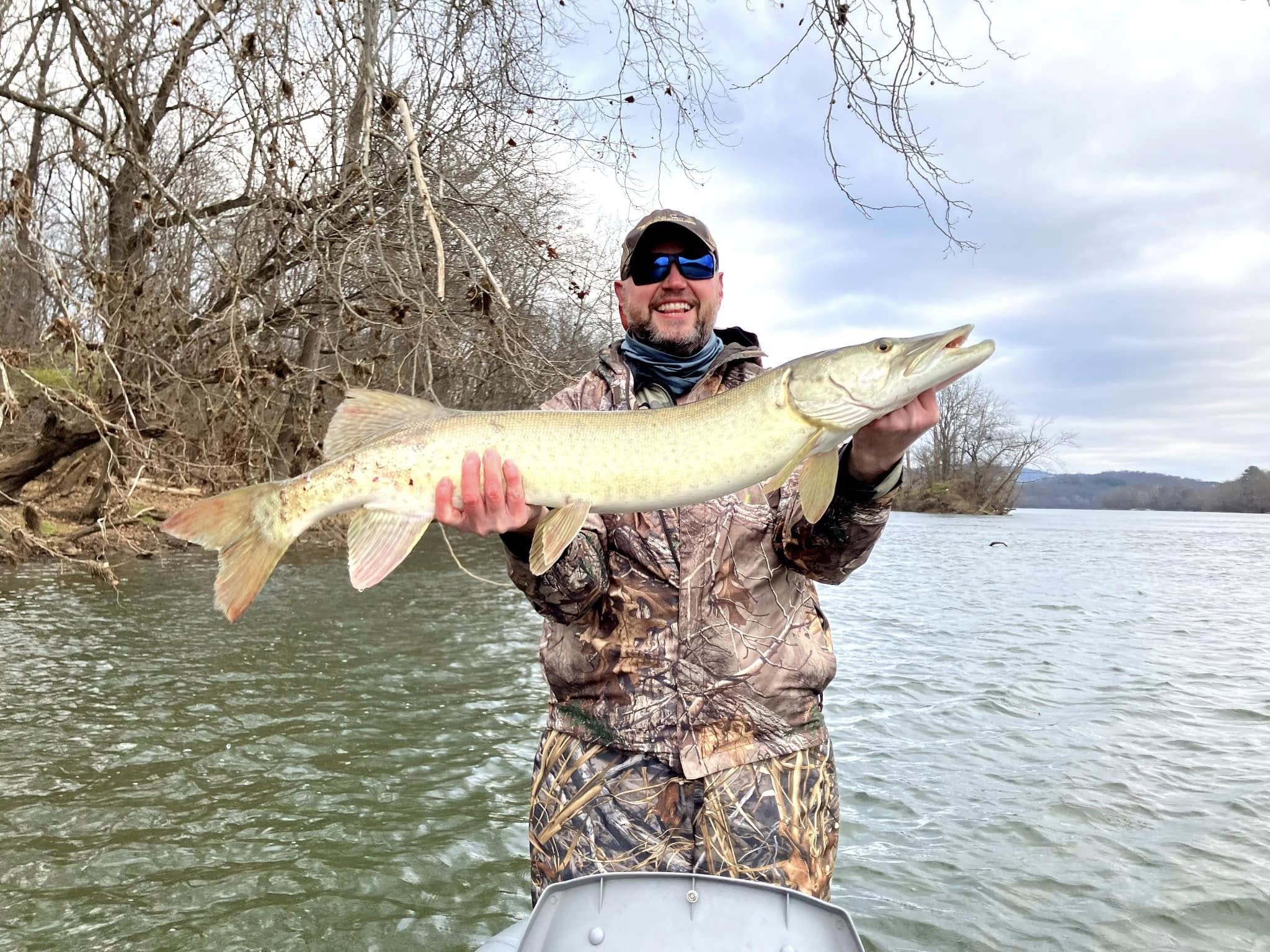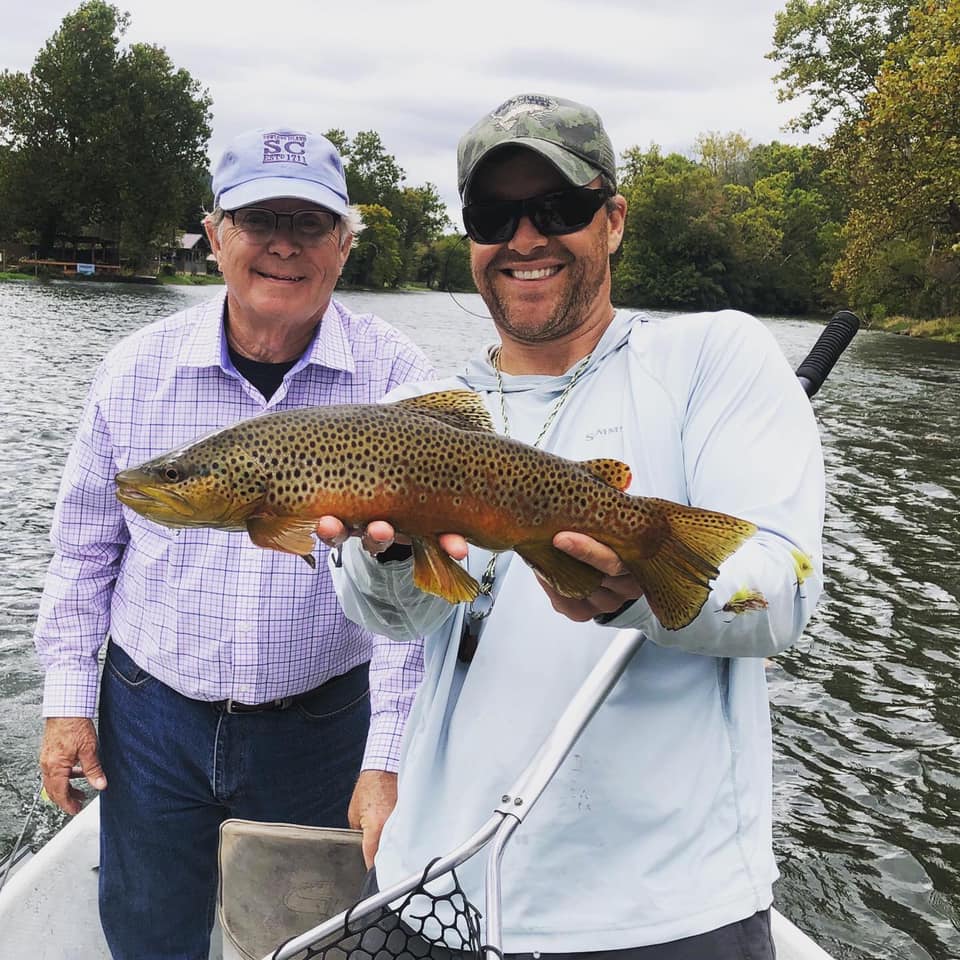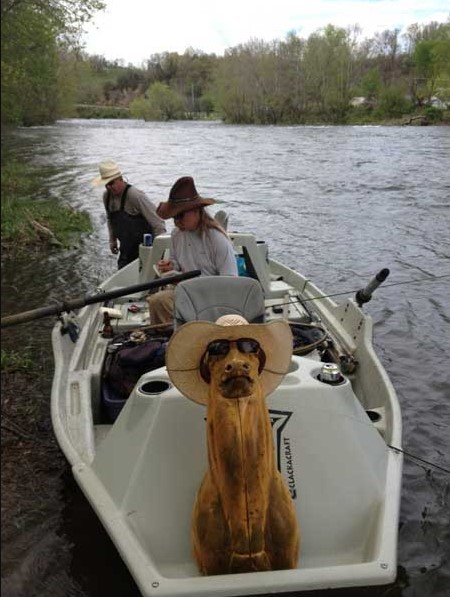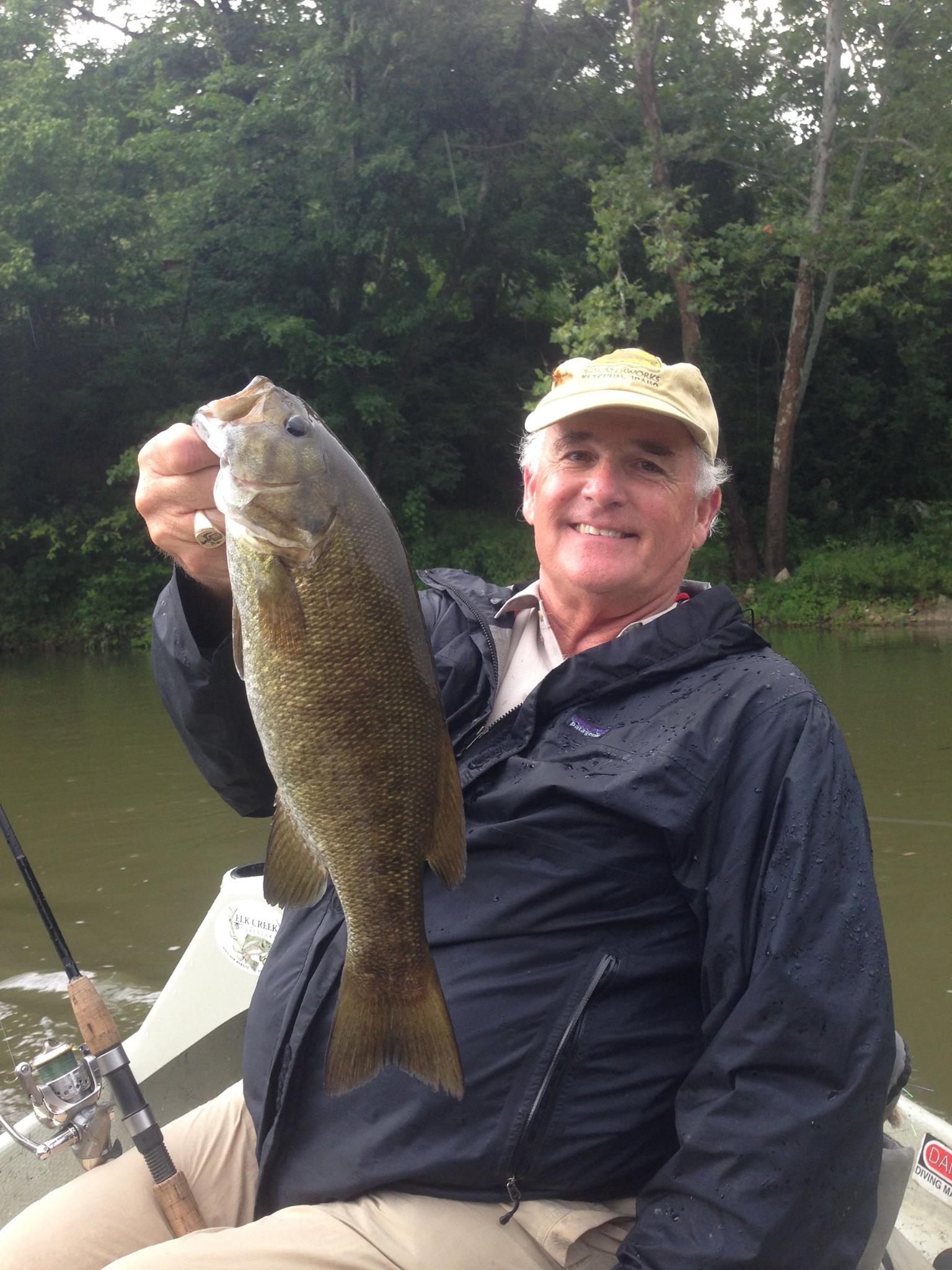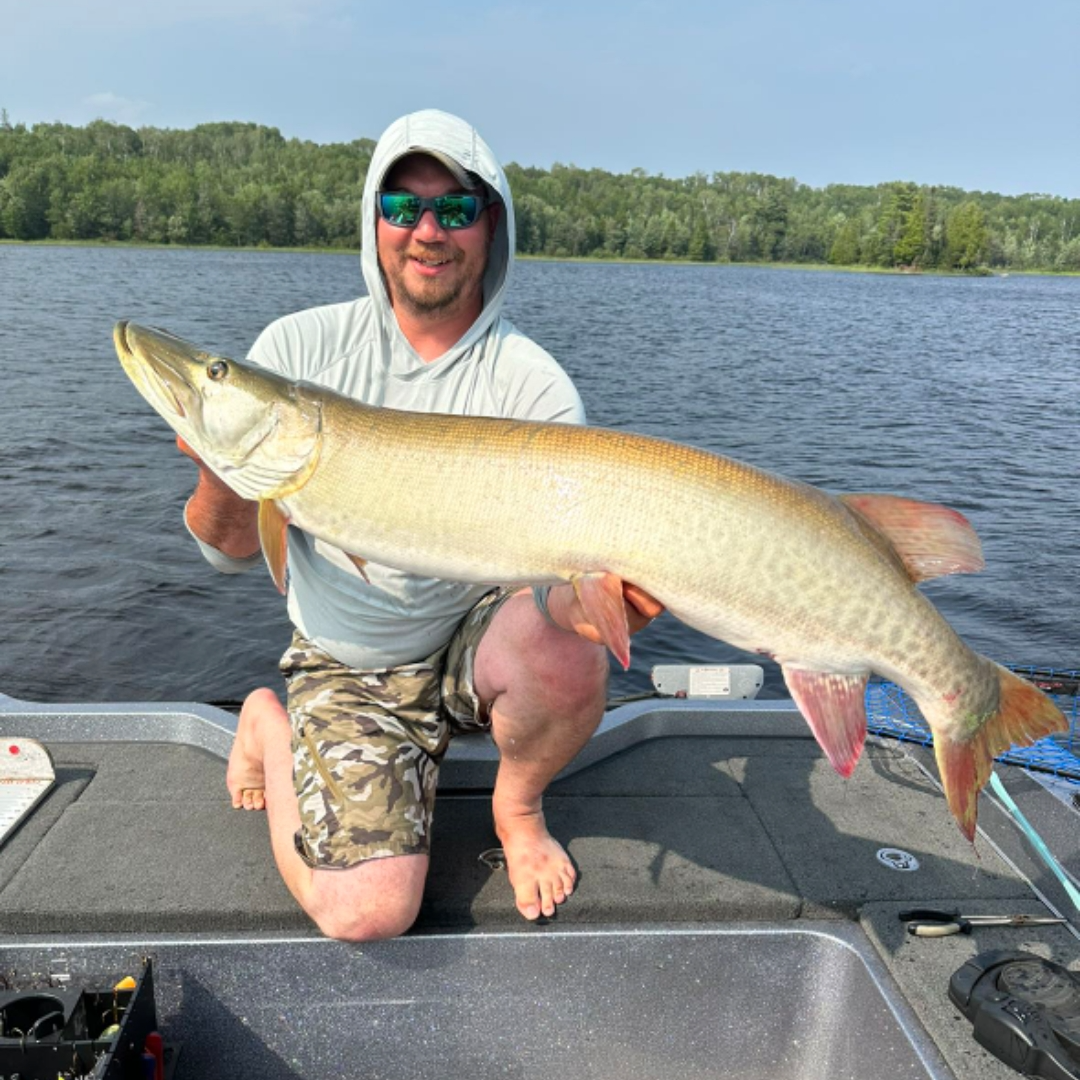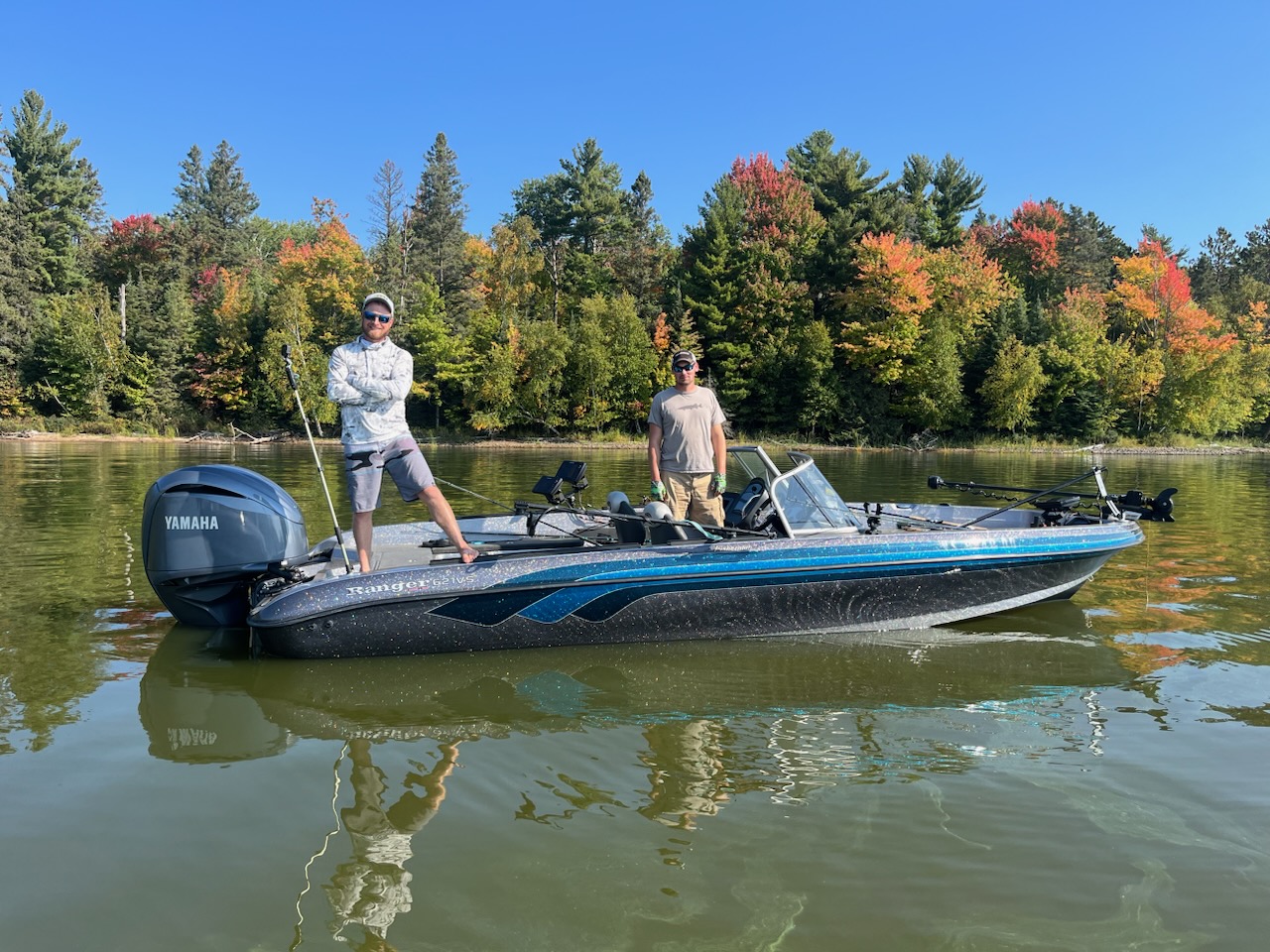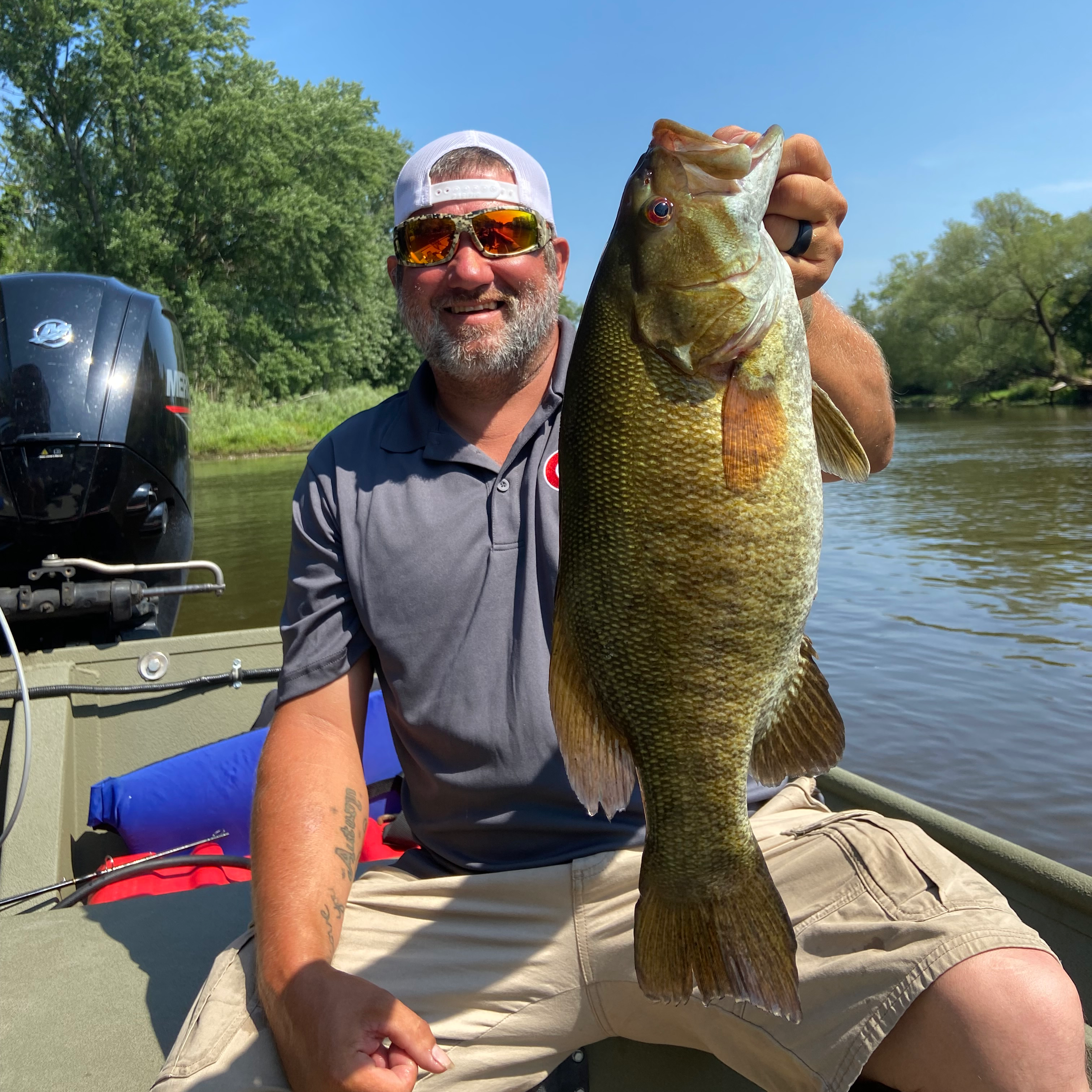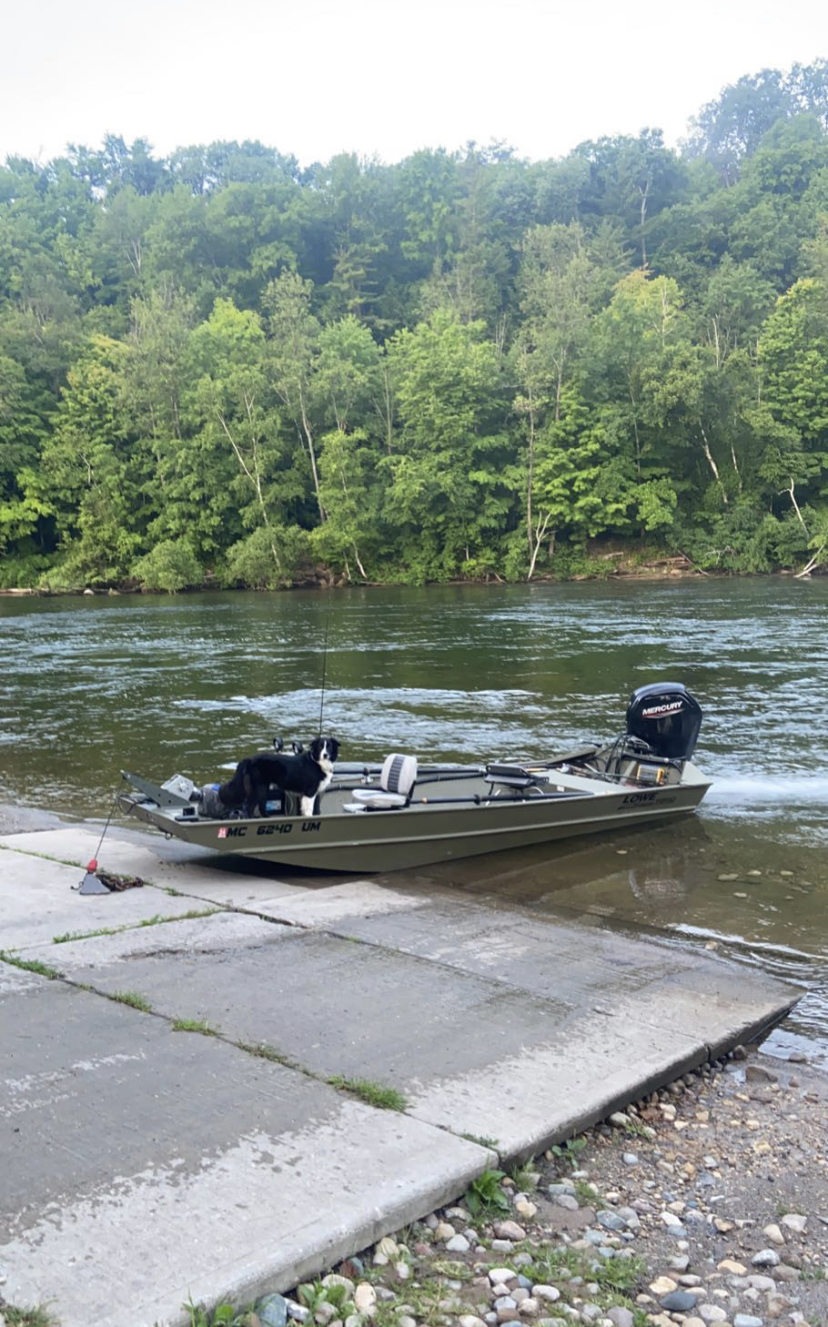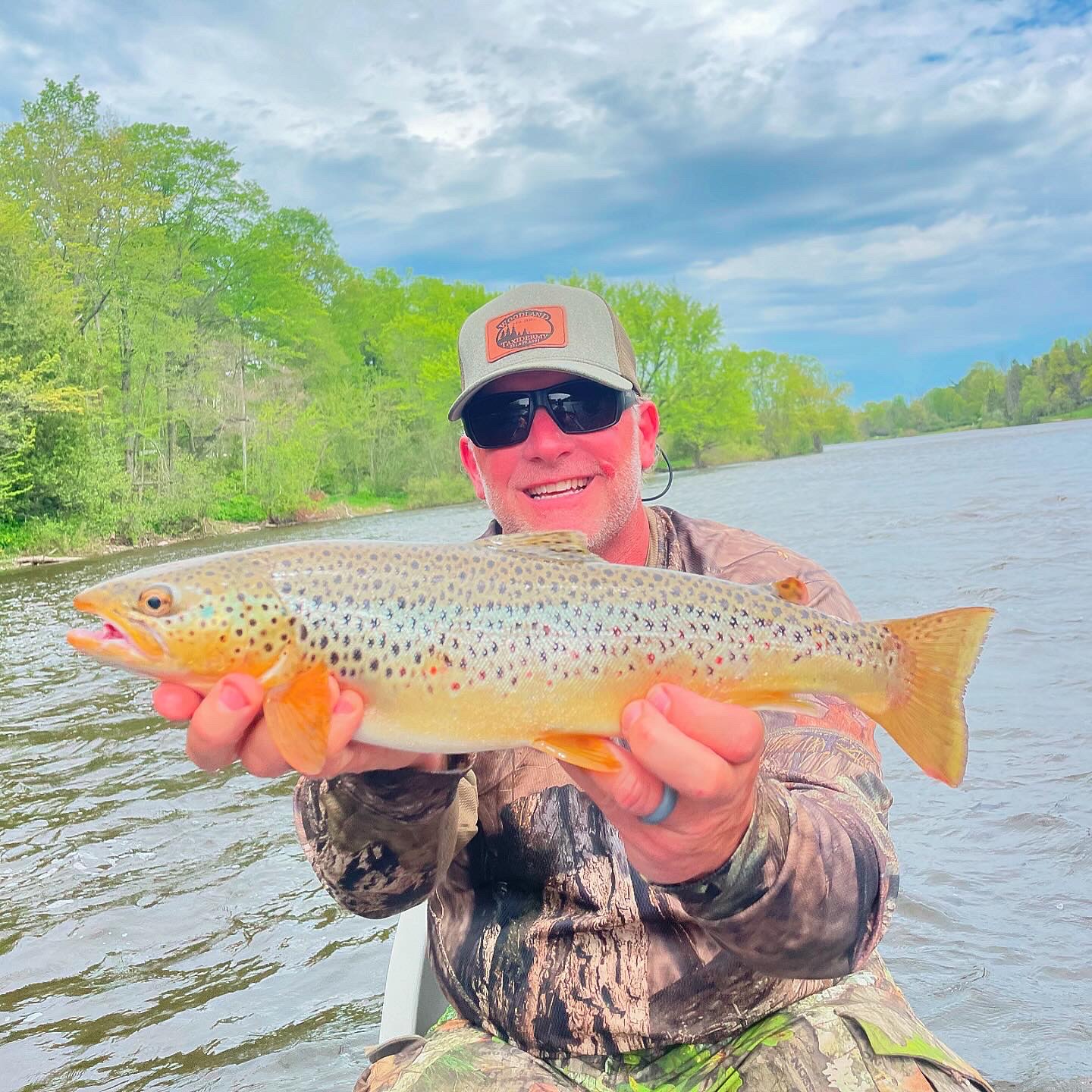Damn Good Guides
Experts Available 24/7
100% Weather Guarantee
Top Cities for Muskie Fishing
“Our Damn Good Guides go above and beyond, and we’ve handpicked every single one. We’re passionate about the outdoors and look forward to getting you out on the trip of a lifetime, every time.”
Jonathan and Attison | Co-founders | Austin, Texas
Muskie Fishing Guides
River, Lake Fishing in Hayward
Muskie Trip
Lake Fishing in St. Clair Shores
Musky Casting Trip 8-11hrs
River, Lake Fishing in Stanwood
Full Day Fishing
Northern Wisconsin Fishing
Lake Fishing in St. Clair Shores
Musky Trolling Trip 6-8hrs
Gauley River Full Day Guided
Everything to Know About Booking a fishing trip
What are the best muskie fishing trips?
The best muskie fishing trips are:
What is a Muskie?
The muskellunge (that’s the name his parents gave him, but everyone calls him muskie or musky for short) is an alpha freshwater predator in North America. This is the pike’s big brother both figuratively (they’ll eat pike) and literally (the muskie is the largest member of the pike family of fish).
The name muskellunge comes from tribes native to the northern US and Canada, and originally meant “great fish” or “big pike”. The fish itself is a large ambush predator with a long, thin shape built for speed. They have an impressive set of chompers built for snagging prey, and just like pike they will eat nearly anything that is unlucky enough to be nearby, including reptiles and mammals and other fish that appear almost too large to even fit in the muskie’s mouth.
Muskie are targeted mostly for sport and as a trophy fish due to their size and the difficulty and skill involved of catching them - they aren’t known as the fish of 10,000 casts for nothing.
How big do muskie get?
Muskie closely resemble their family members the pike and even the American pickerel in both appearance and behavior but reach substantially larger sizes. Muskie are typically between 28 and 48 inches and between 15 and 35 pounds, but they are known to reach up to 72 inches long and 70 pounds in extreme cases. Juvenile fish tend to grow to about 12 inches in their first year.
What's the biggest Muskie ever caught?
When fishing for muskie it is more common to brag in terms of inches than pounds, and a 50 inch fish seems to be the threshold for what are considered to be trophy fish. There are two fish that compete for the world record muskie and while the true record is somewhat contested, both fish are just over 60 inches and almost 70 pounds. Fish about this size have been seen when doing electroshocking on certain lakes as well.
In 2013 a man named John Grover allegedly caught a 64 inch musky on the shores of Lake Michigan but mistook the current record to be 70 inches so he let his fish go before official measurement.
Many suspect Mille Lacs Lake in Minnesota to be the home of the next big record.
What is a tiger muskie?
Tiger muskies are highly sought after combinations of a pike and a muskie. The tiger muskie is the sterile offspring of a northern pike and a true muskie, and this hybrid is known for its unique look. While true muskies and northern pike are generally fairly similar in appearance, a tiger muskie - while the same general shape - has a unique set of vertical stripes on its sides, giving it the distinct name.
Tiger muskies are said to have hybrid strength, and grow 1.5 times quicker than a true muskie and also fight harder pound for pound.
The tiger muskie generally falls in between the true muskie and the northern pike in terms of size, and the current (alleged) record tiger muskie was caught in 2011 by Charlie Gallagher in Minnesota. His fish was 50 inches long with a 25 inch girth and an estimated weight of 49 pounds. He released the fish, citing that he couldn’t bear to take it and see it belly up.
Where is the best place to catch muskie?
Muskie are a freshwater fish that are endemic to northeastern US ranging from the Great Lakes and St. Lawnrence River to Chattanooga and the Tennessee River Valley. They have been introduced elsewhere, up to Maine and also across the northern US and Canada over to Washington and Vancouver, but they are considered invasive and harmful to local species and anglers are encouraged not to release them back to the wild if caught.
If you want your best chance as a muskie, head to Wisconsin, Michigan, Minnesota, or Ontario. These states have all the biggest fish on record and also have the biggest amount of hospitable water area for the fish.
Muskies prefer clear, shallow lake waters with plenty of vegetation to help them spawn and attach unsuspecting prey. To find the best muskie, it is recommended to find the lakes with the biggest concentrations of ciscoes and other forage fish which can help fatten up the muskie population.
When should I catch Muskie?
With the exception of winter, there are plenty of great opportunities to get out there and hunt down a muskie.
In spring all the hardcore anglers are chomping at the bit to get out there and target some muskie again. Muskie don’t start actively feeding at the beginning of the season due to the stresses of winter and the rigors of the spawn, but this is what presents a nice challenge for the impatient angler. The angler should focus on shallower lakes that will warm faster.
In summer, water temp will be higher and fish will be most active. Muskie will congregate around weeded areas where they can ambush prey.
Fall is the time for trophy muskie, with the peak months for big fish September and October. Muskie are looking to put on fat for the winter.
How do you catch Muskie?
Muskies usually have two distinct ranges in their home waters during the season, a shallow and a deep range. They will move around depending on water temperature and bait.
In spring, muskies are generally sluggish this time of year and will not spend time chasing lures. Smaller lures are easier this time of year to convince the muskie they need a quick bite to eat, and the retrieve can be slow.
Once water temperature is back above 60 degrees in the summer anglers can start using heavier tackle and bigger lures with a faster retrieve and can work deeper areas with larger spinner baits, bucktails, jerkbaits, crankbaits, and even spoons.
If the water temperature is above 70, the fish will slow down again, and it is best to work them in the morning and evening, and trolling comes into play.
In the Fall as the temperature cools you can resort to spring tactics in reverse, although the fish should be a little easier as they try to gain weight for the winter.
As a general rule, muskie can be finicky and may appear but not seem to like the presentation. There is a reason they are known as the “fish of 10,000 casts”. Sometimes they can be enticed with a last minute figure-8 by the boat but more often than not they will swim away and leave you trying again. This contrasts with pike, who are more likely to eat anything they can get their hands on.
Are Muskie good to eat? What are the best Muskie recipes?
Muskie are not known to be good eating and are pursued mainly as a trophy fish, with most anglers practicing catch and release. Muskie also grow slowly, so it is best for populations for them to live another day. Trophy mounts today can be made based on images and measurements. In places where the muskie is not native, it is recommended to keep the fish not for food, but so that there is less disturbance of native populations, including lake trout.
Recent Reviews
Other Fishing Species
- Atlantic Mackerel
- Atlantic Salmon
- Black Seabass
- Bluefish
- Bonito
- Bowfin
- Brook Trout
- Brown Trout
- Burbot
- Carp
- Chinook Salmon
- Coho Salmon
- Crappie
- False Albacore
- Flounder
- Fluke
- Hybrid Striped Bass
- Lake Trout
- Largemouth Bass
- Northern Pike
- Perch
- Rainbow Trout
- Scup
- Smallmouth Bass
- Spiny Dogfish
- Steelhead
- Striped Bass
- Sturgeon
- Sunfish
- Tautog
- Triggerfish
- Walleye
- Weakfish
Featured Cities
- Fishing Charters Near Me
- Austin Fishing Guides
- Biloxi Fishing Charters
- Bradenton Fishing Charters
- Cabo San Lucas Fishing Charters
- Cancun Fishing Charters
- Cape Coral Fishing Charters
- Charleston Fishing Charters
- Clearwater Fishing Charters
- Corpus Christi Fishing Charters
- Crystal River Fishing Charters
- Dauphin Island Fishing Charters
- Daytona Beach Fishing Charters
- Destin Fishing Charters
- Fort Lauderdale Fishing Charters
- Fort Myers Fishing Charters
- Fort Walton Beach Fishing Charters
- Galveston Fishing Charters
- Gulf Shores Fishing Charters
- Hatteras Fishing Charters
- Hilton Head Fishing Charters
- Islamorada Fishing Charters
- Jacksonville Fishing Charters
- Jupiter Fishing Charters
- Key Largo Fishing Charters
- Key West Fishing Charters
- Kona Fishing Charters
- Lakeside Marblehead Fishing Charters
- Marathon Fishing Charters
- Marco Island Fishing Charters
- Miami Fishing Charters
- Montauk Fishing Charters
- Morehead City Fishing Charters
- Naples Fishing Charters
- New Orleans Fishing Charters
- New Smyrna Beach Fishing Charters
- Ocean City Fishing Charters
- Orange Beach Fishing Charters
- Panama City Beach Fishing Charters
- Pensacola Fishing Charters
- Pompano Beach Fishing Charters
- Port Aransas Fishing Charters
- Port Orange Fishing Charters
- Rockport Fishing Charters
- San Diego Fishing Charters
- San Juan Fishing Charters
- Sarasota Fishing Charters
- South Padre Island Fishing Charters
- St. Augustine Fishing Charters
- St. Petersburg Fishing Charters
- Tampa Fishing Charters
- Tarpon Springs Fishing Charters
- Venice Fishing Charters
- Virginia Beach Fishing Charters
- West Palm Beach Fishing Charters
- Wilmington Fishing Charters
- Wrightsville Beach Fishing Charters
What's biting?
View Muskie Fishing Reports from our damn good guides.
Didn't Find What You Were Looking For?
Our guides are Damn Good Guides, which means they’re vetted by our team of outdoor experts who know them on a first-name basis. We hand pick each and every one of them, and our network spans all across the US and beyond.
The proof is in the pudding, and we’re incredibly proud of our 4.9 / 5 average review score. Hit the button below to see more trip options:
